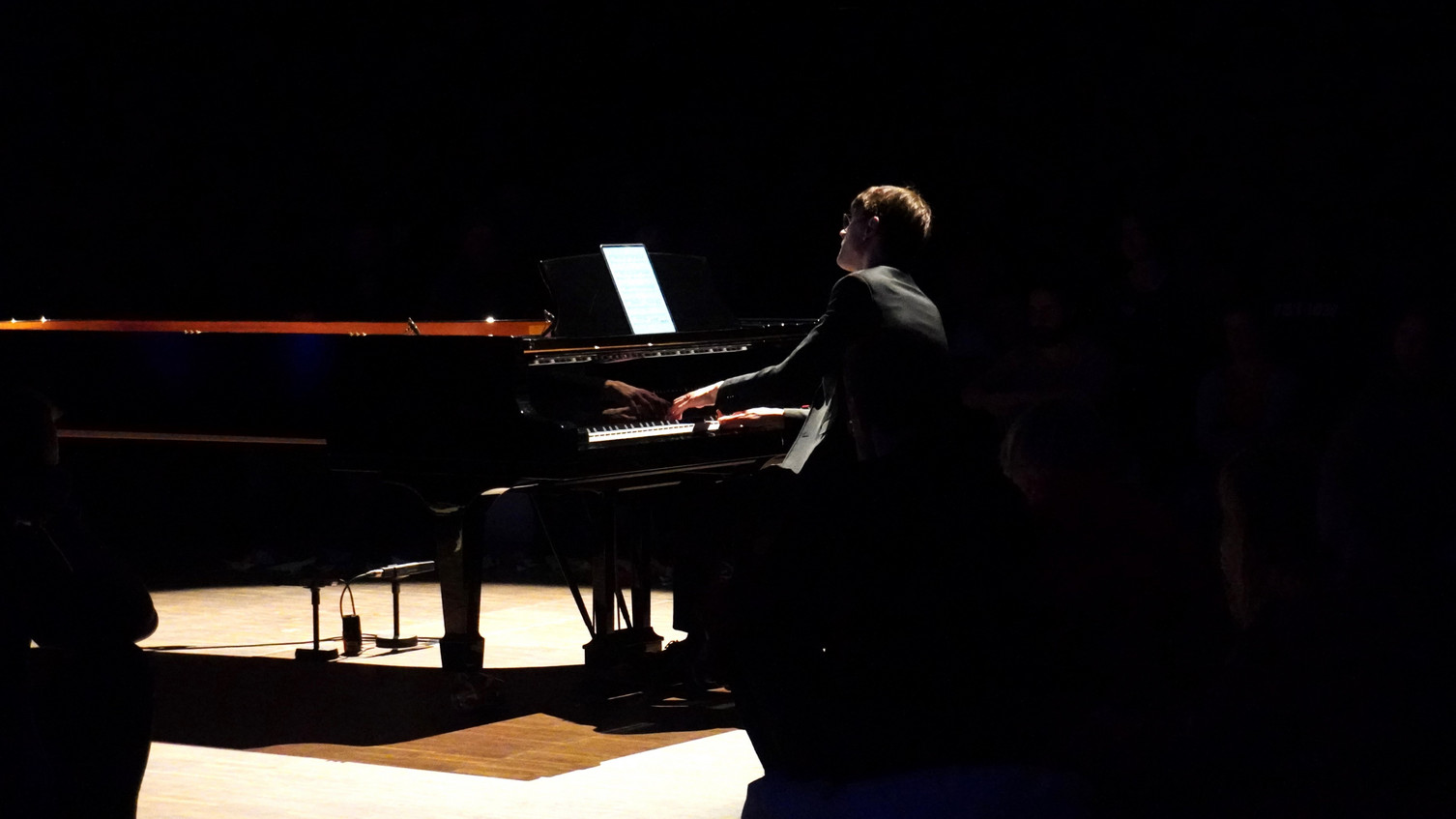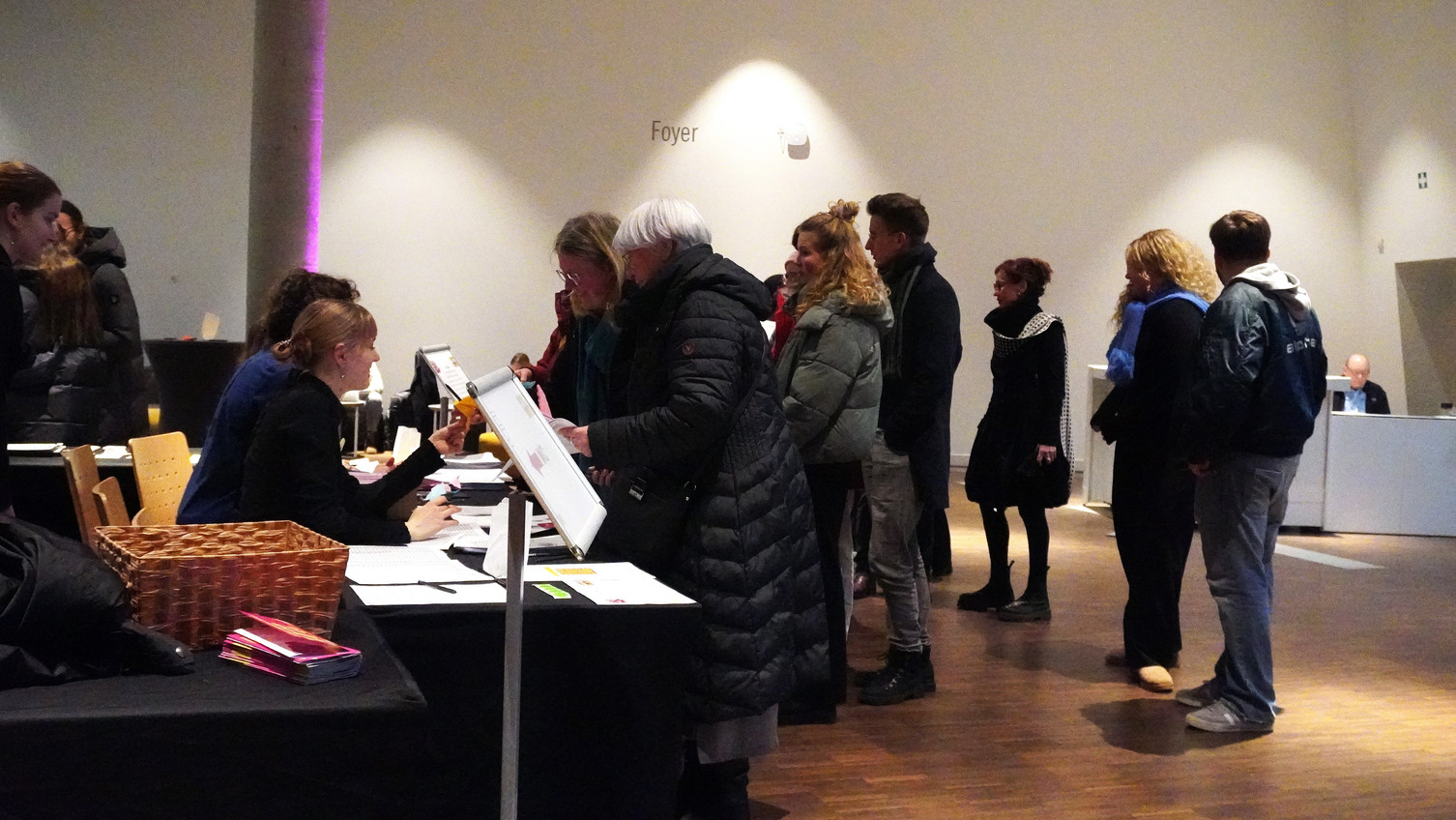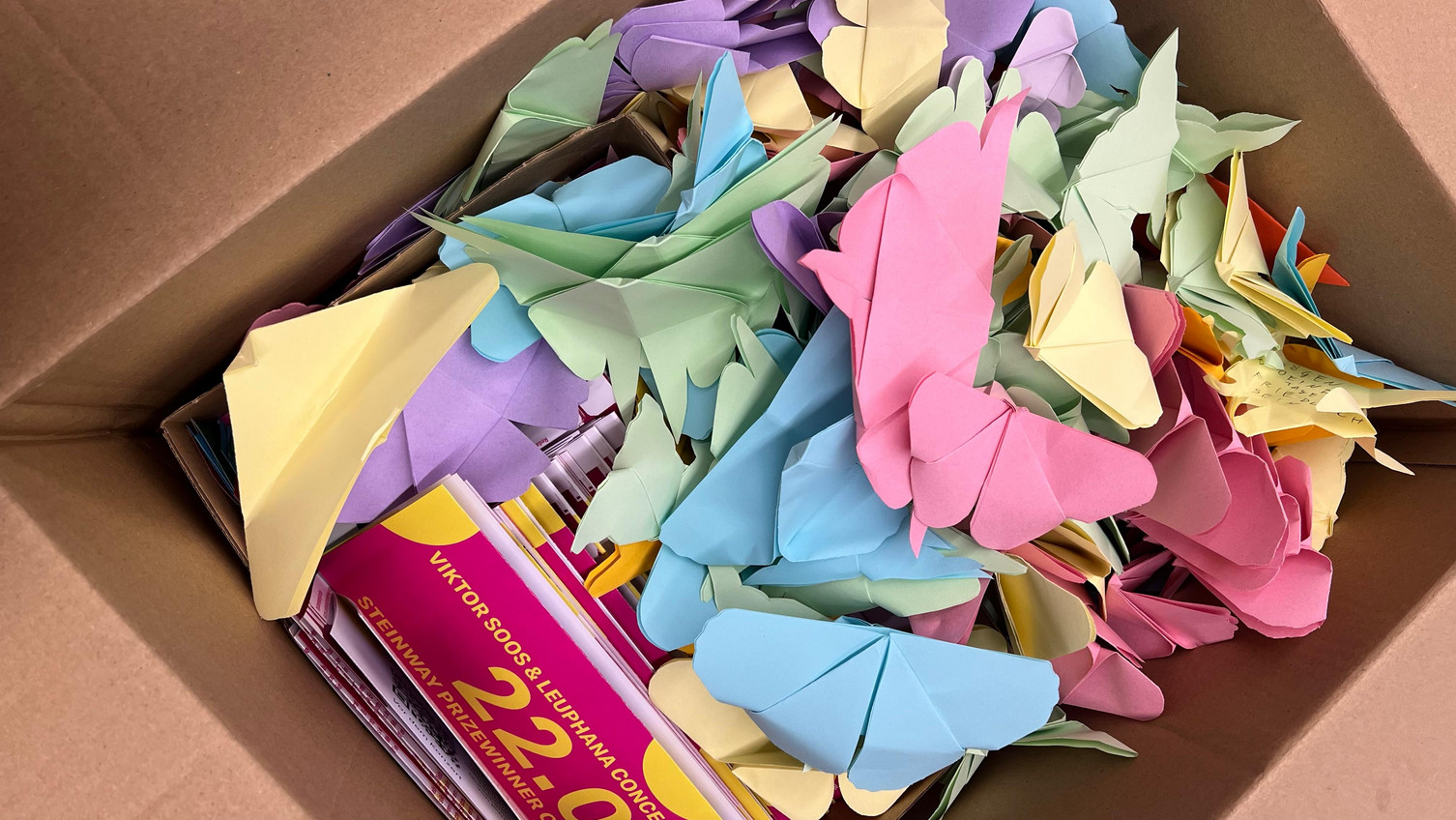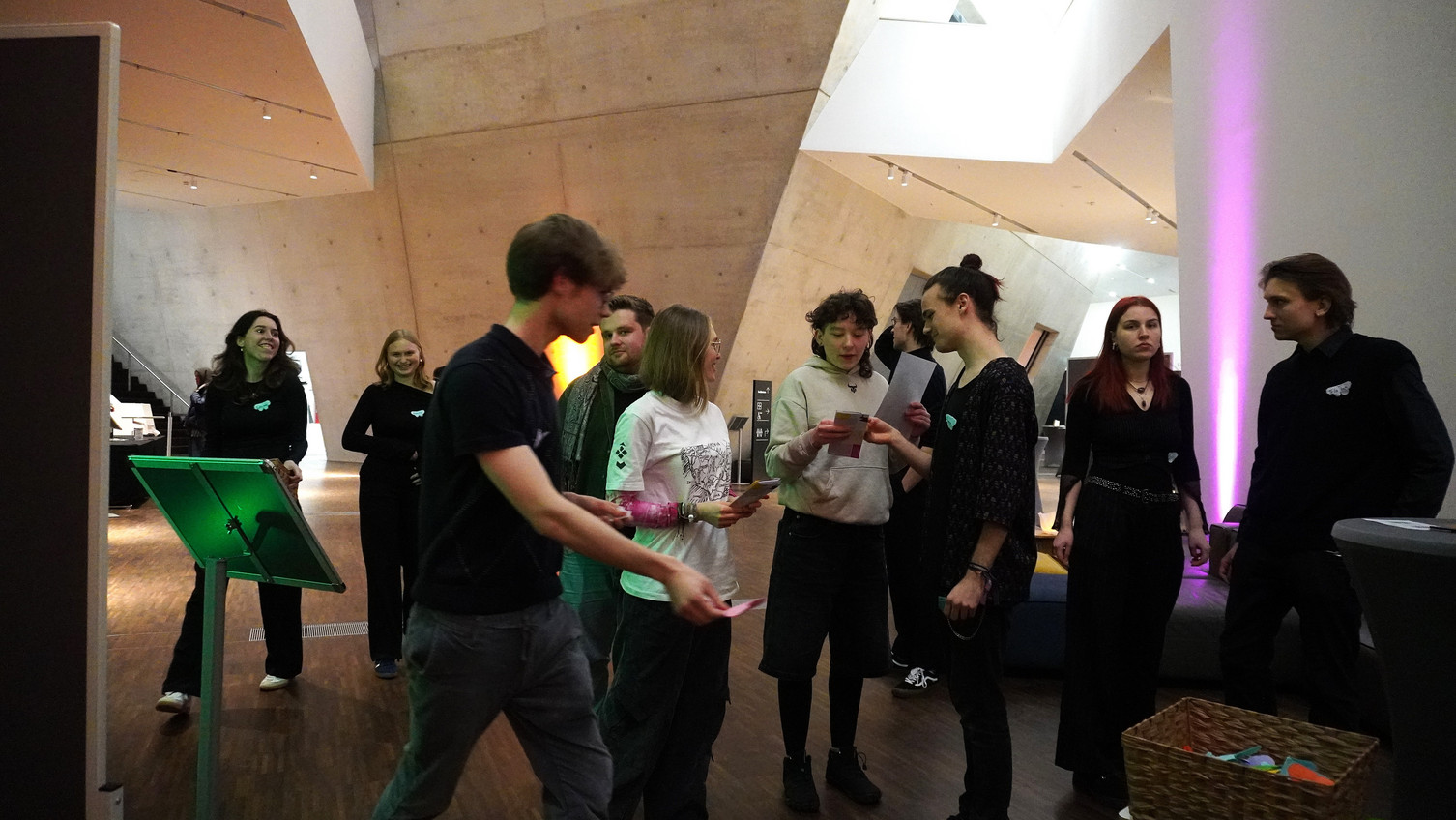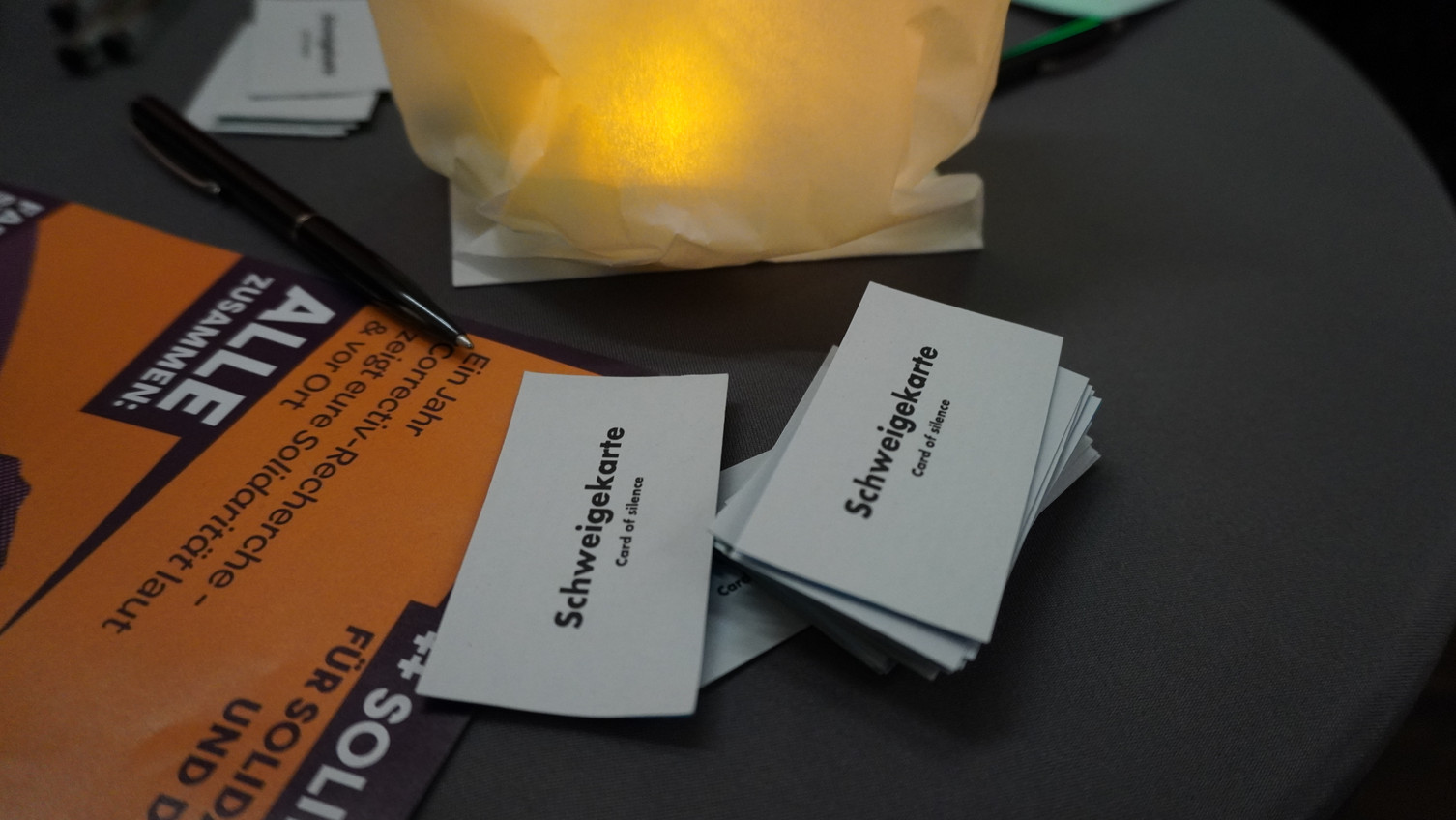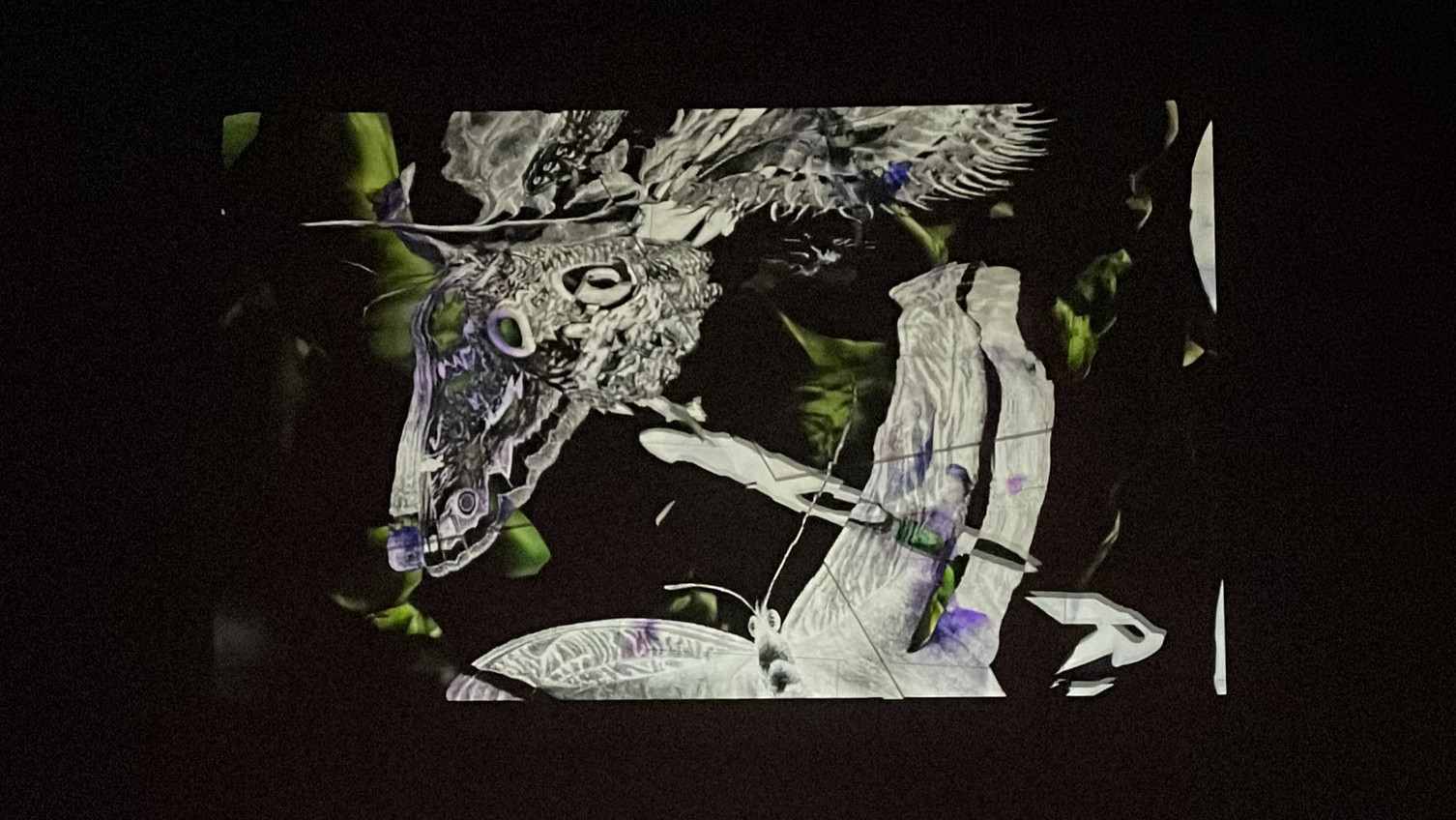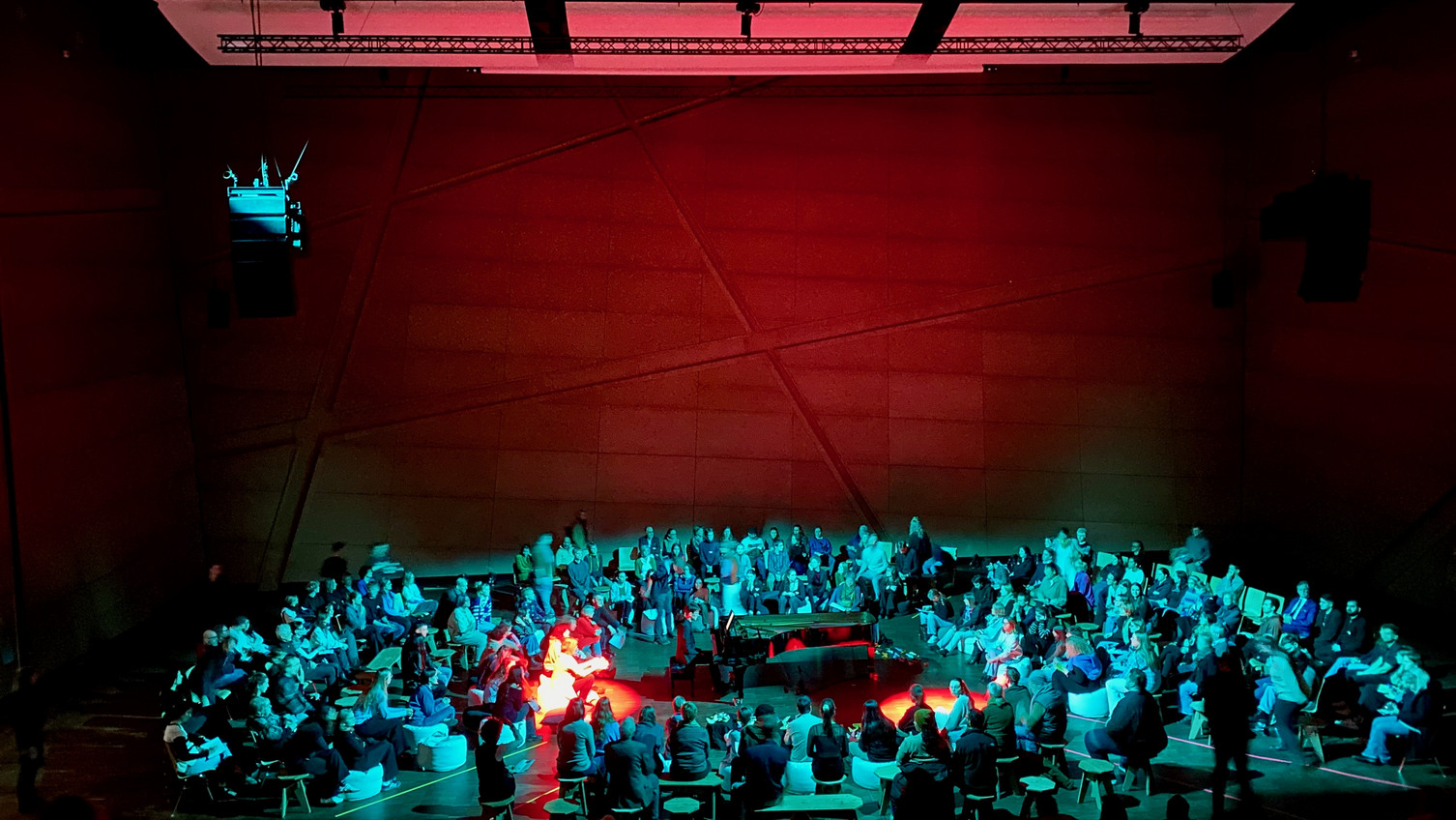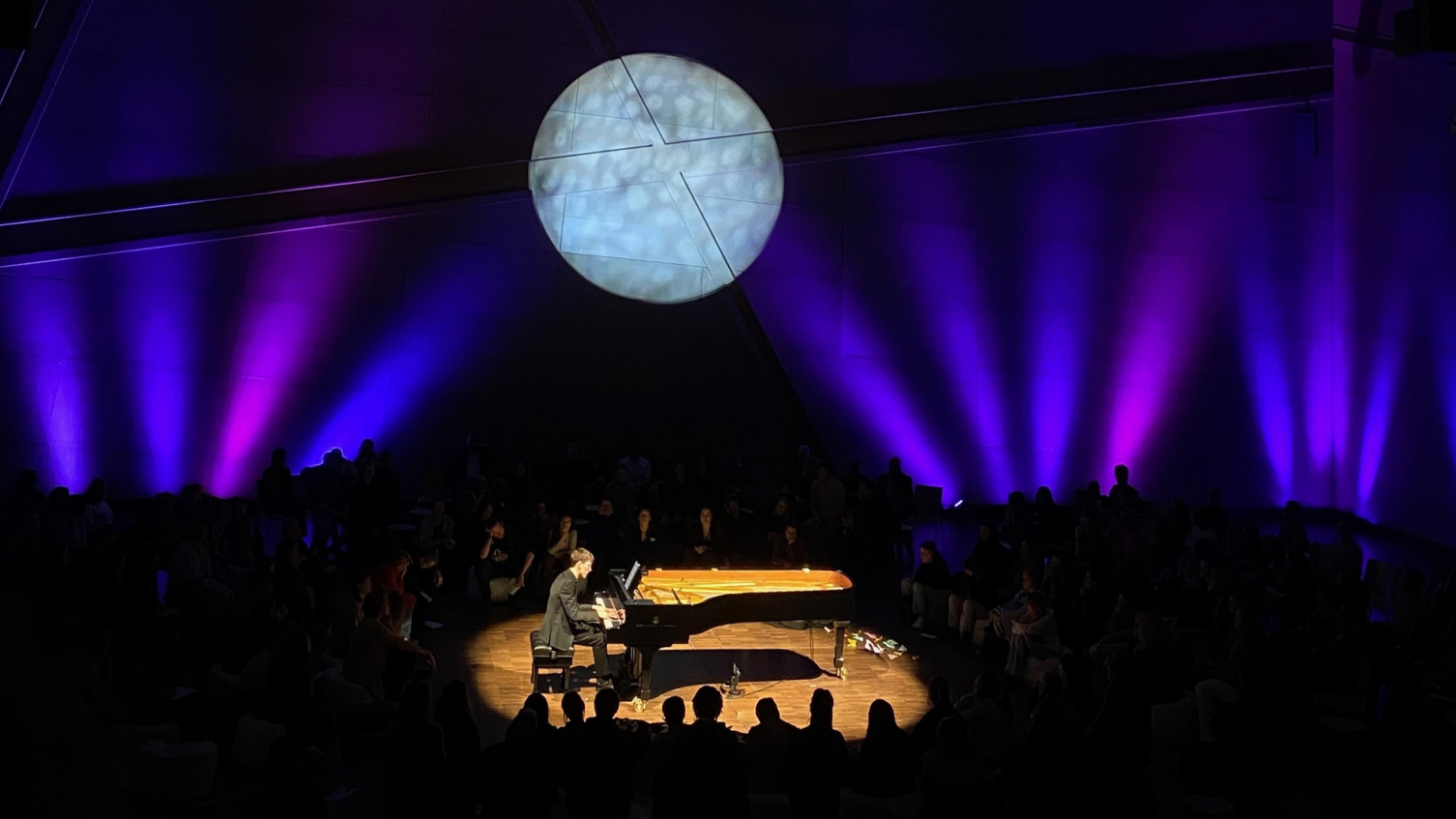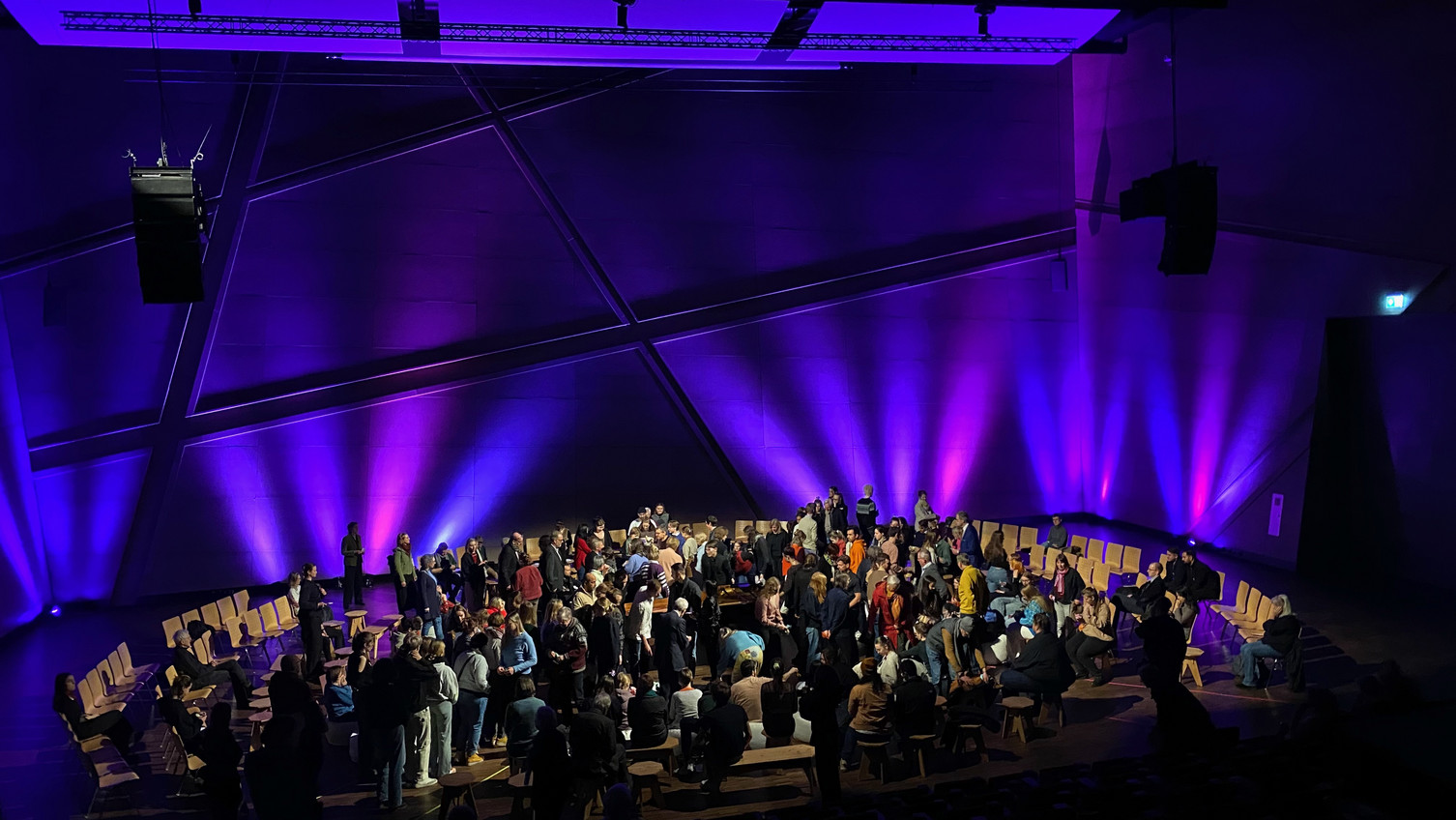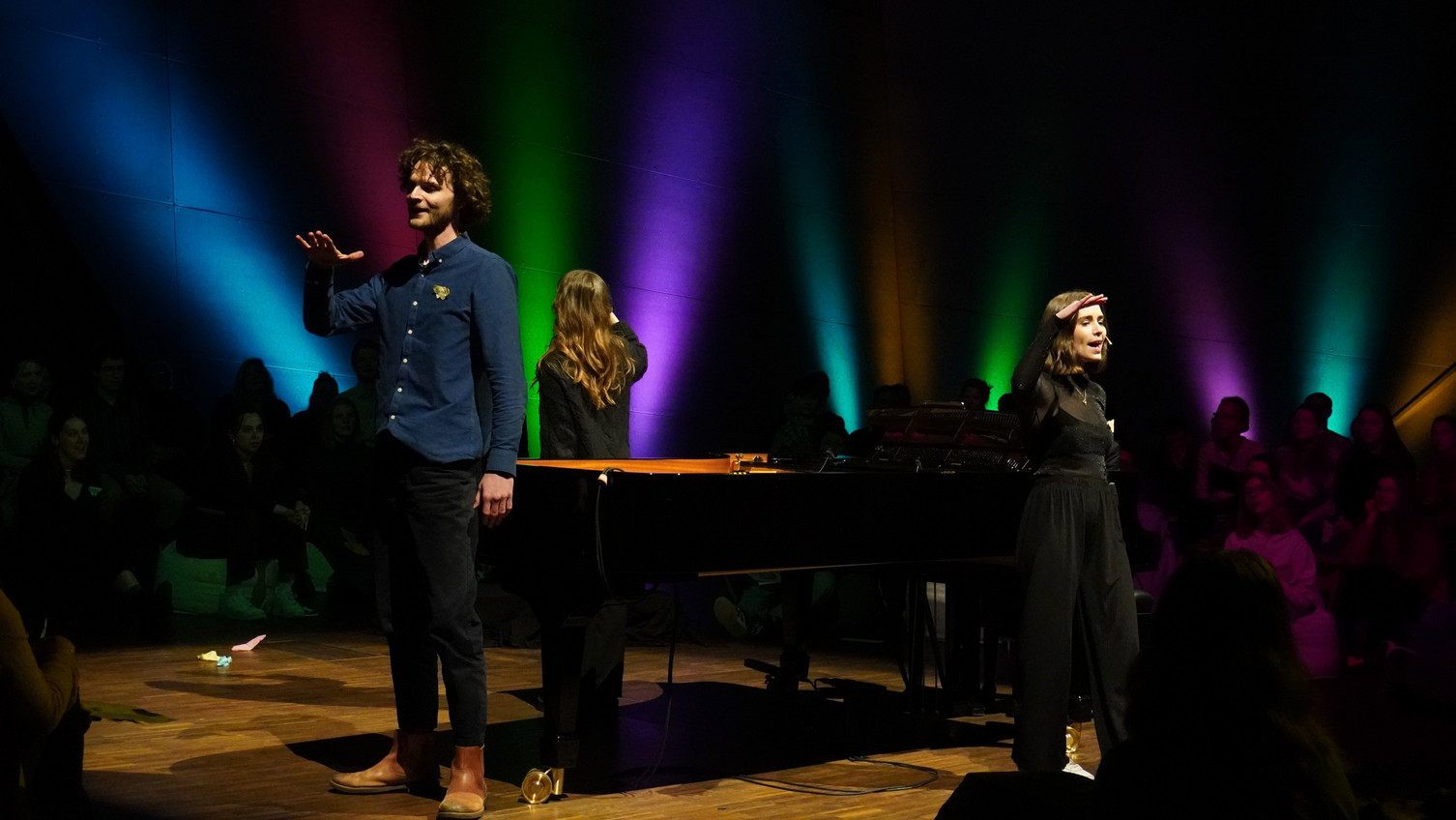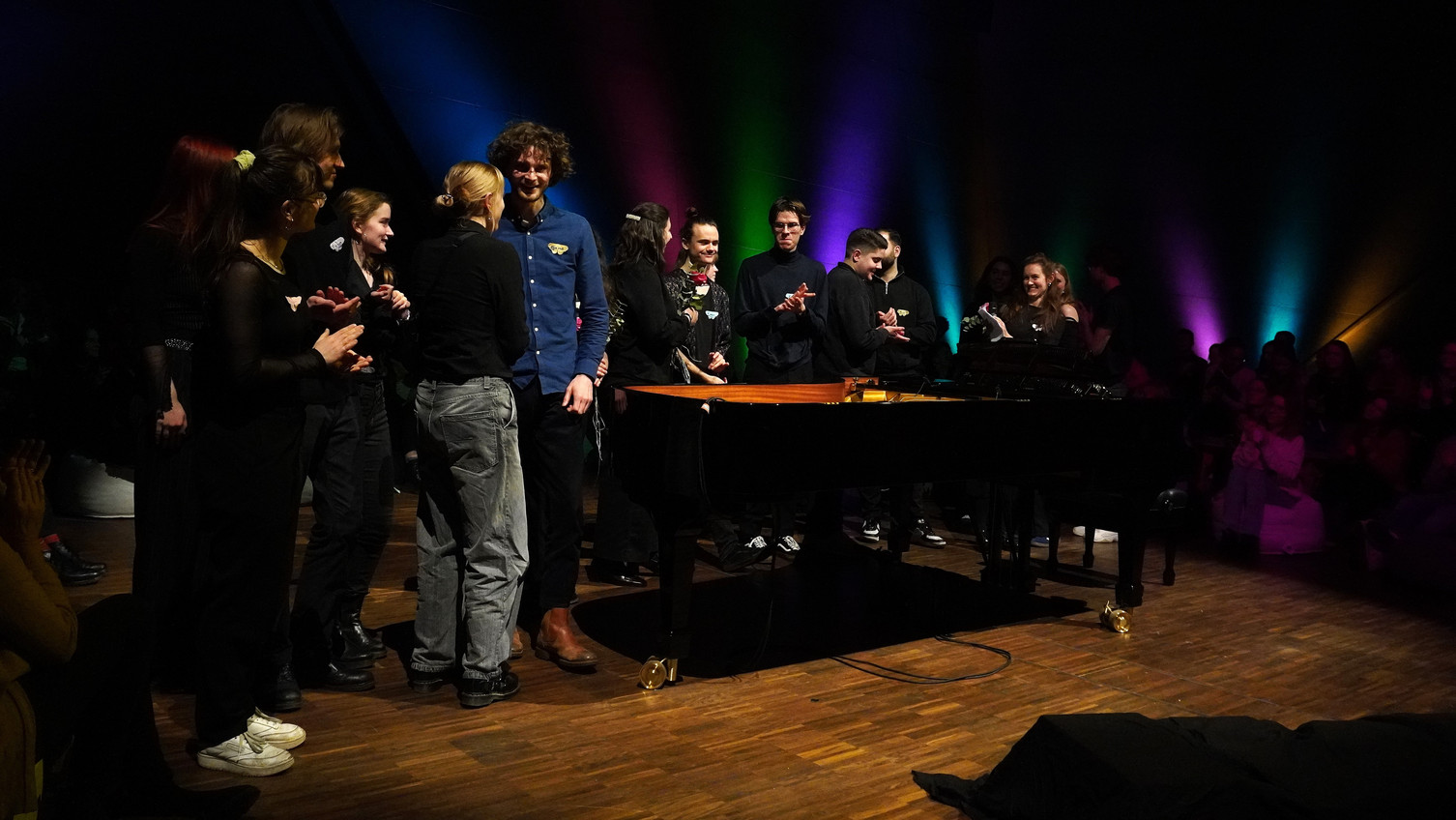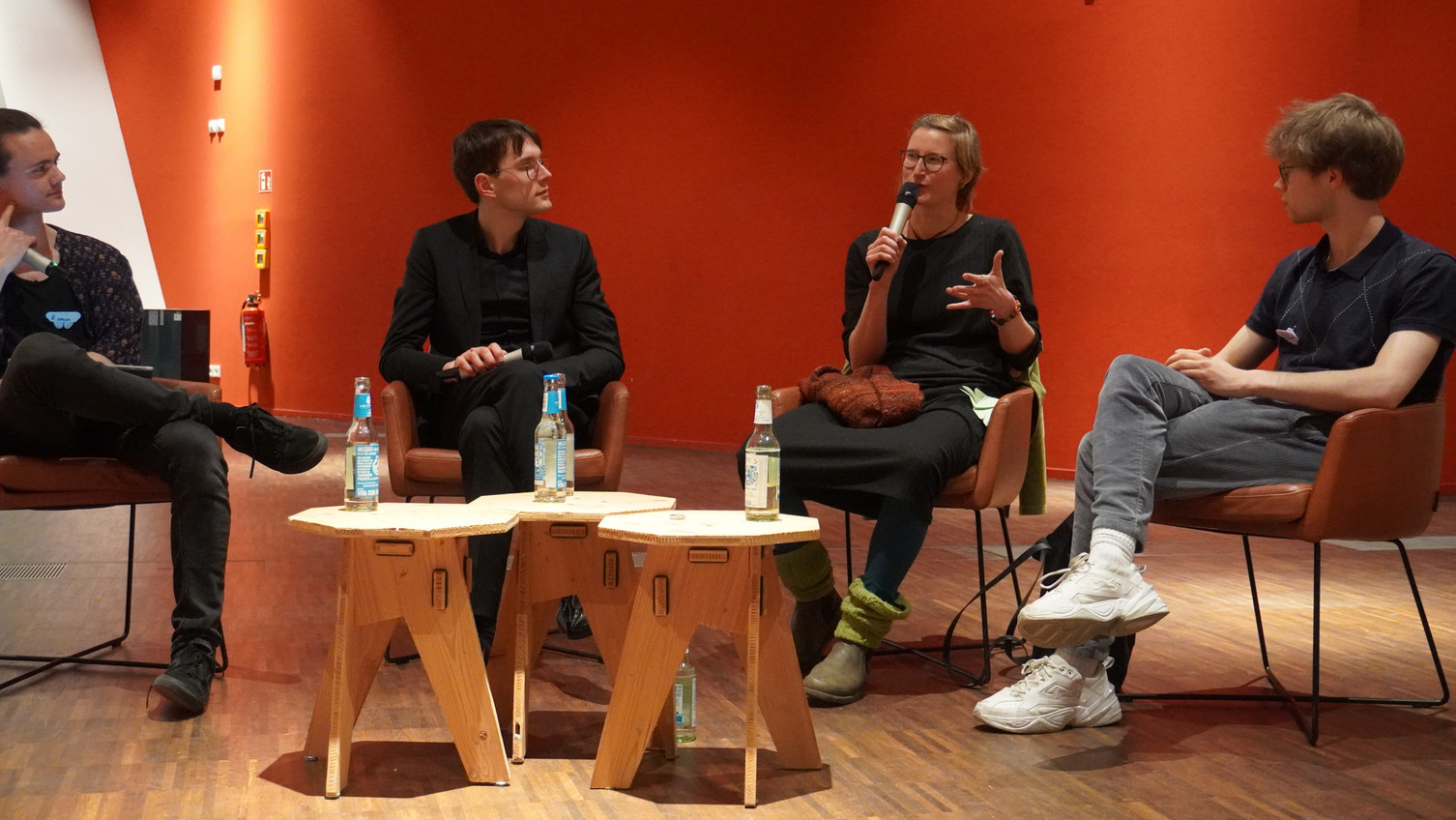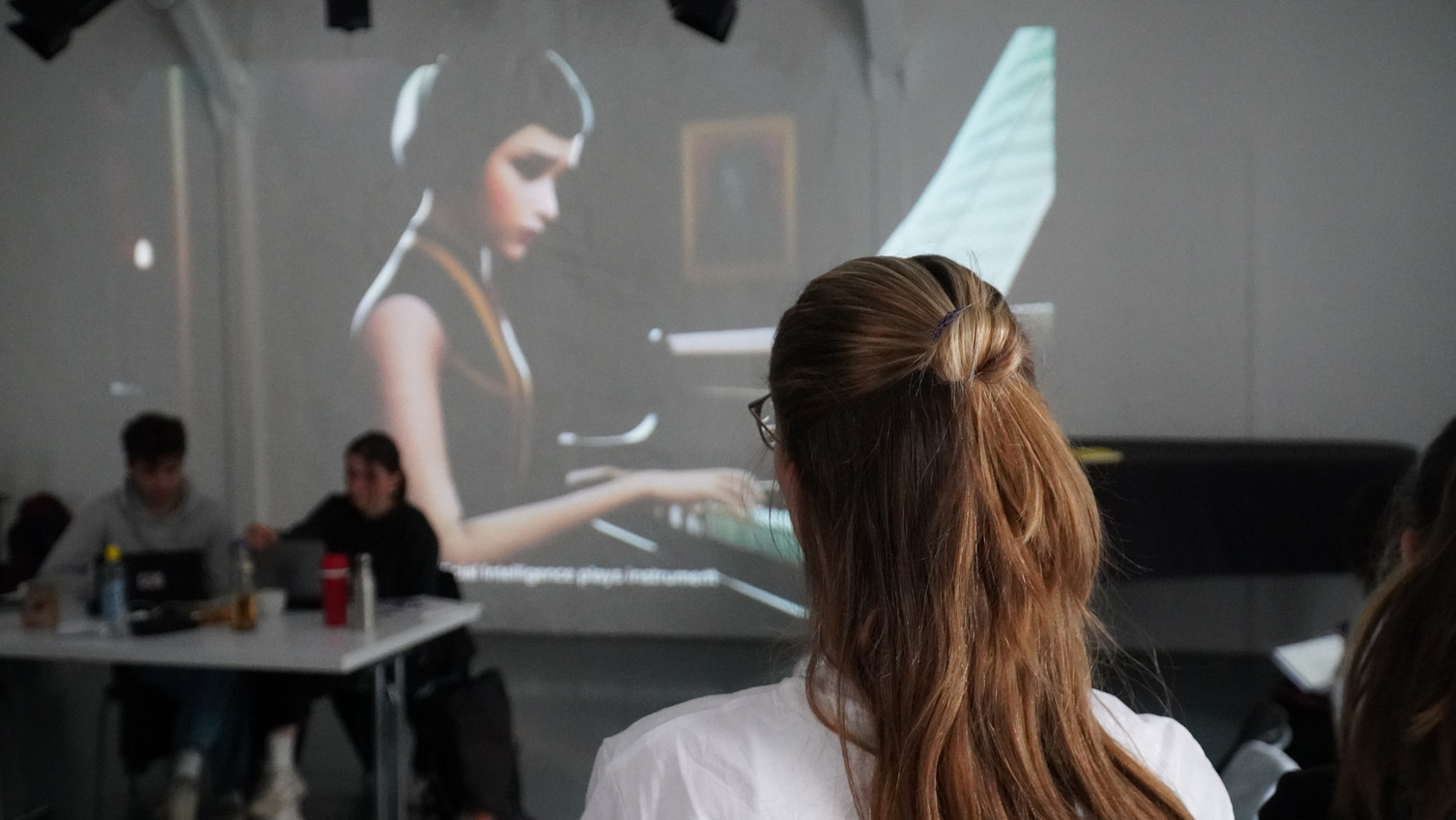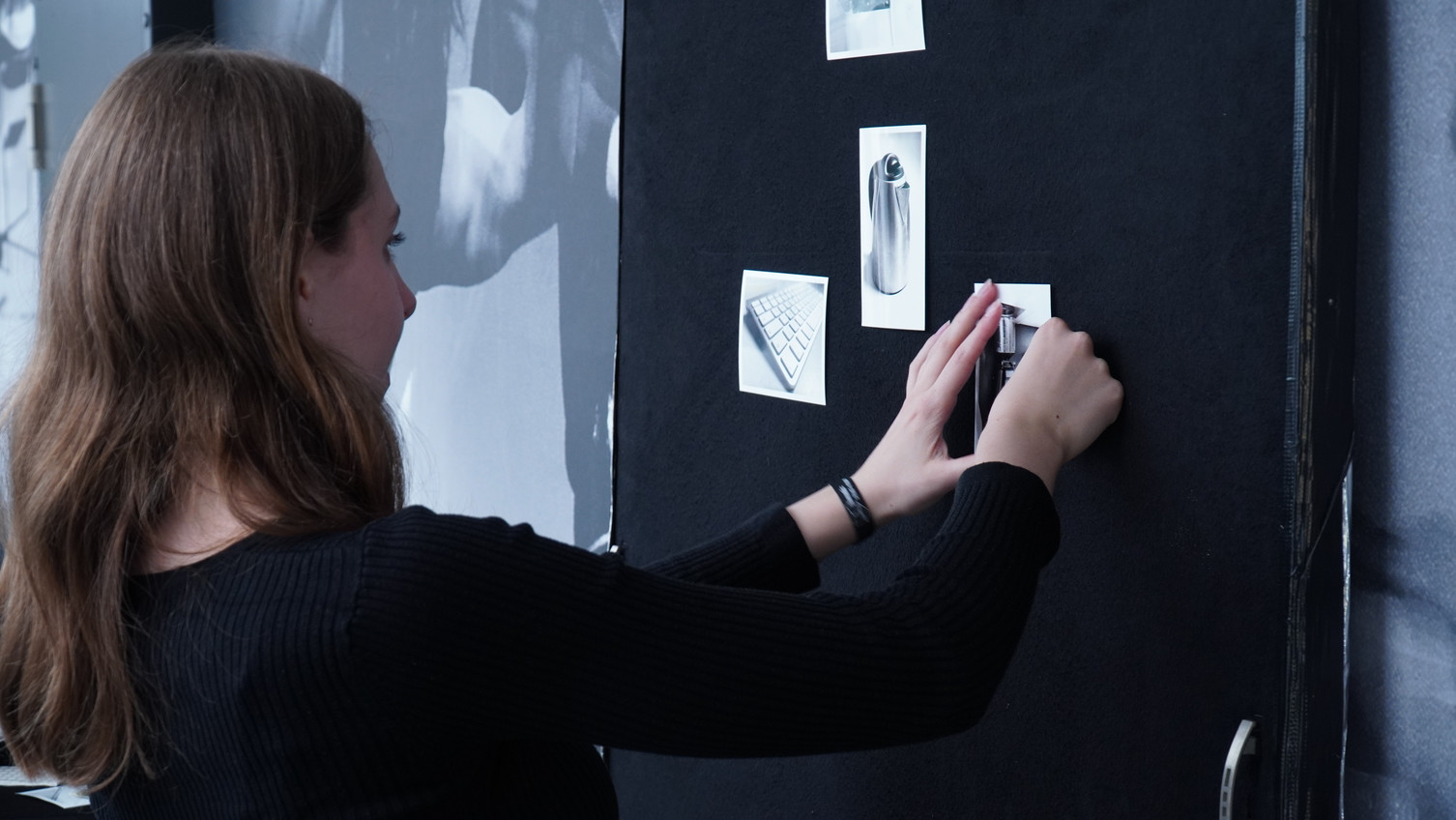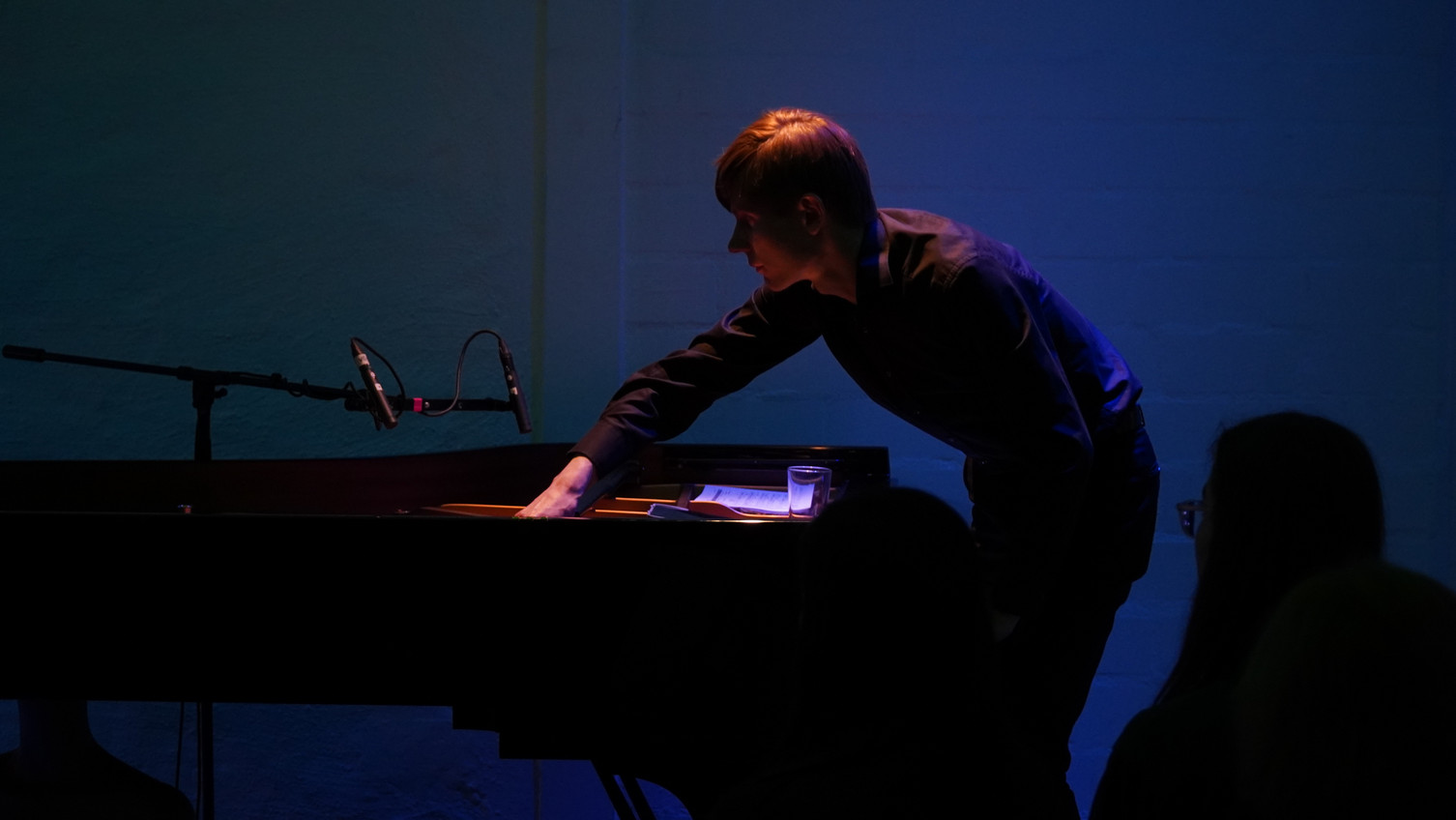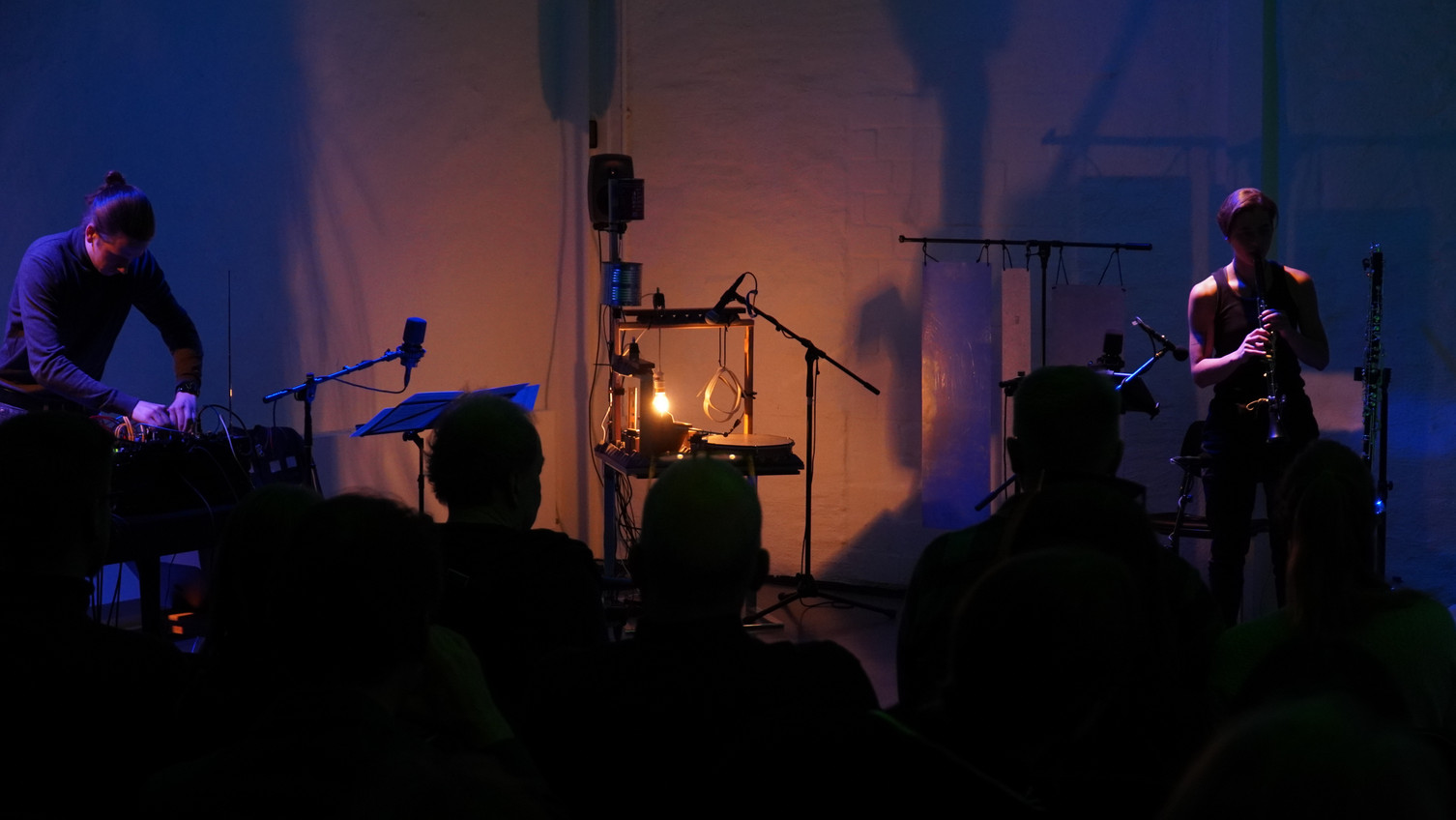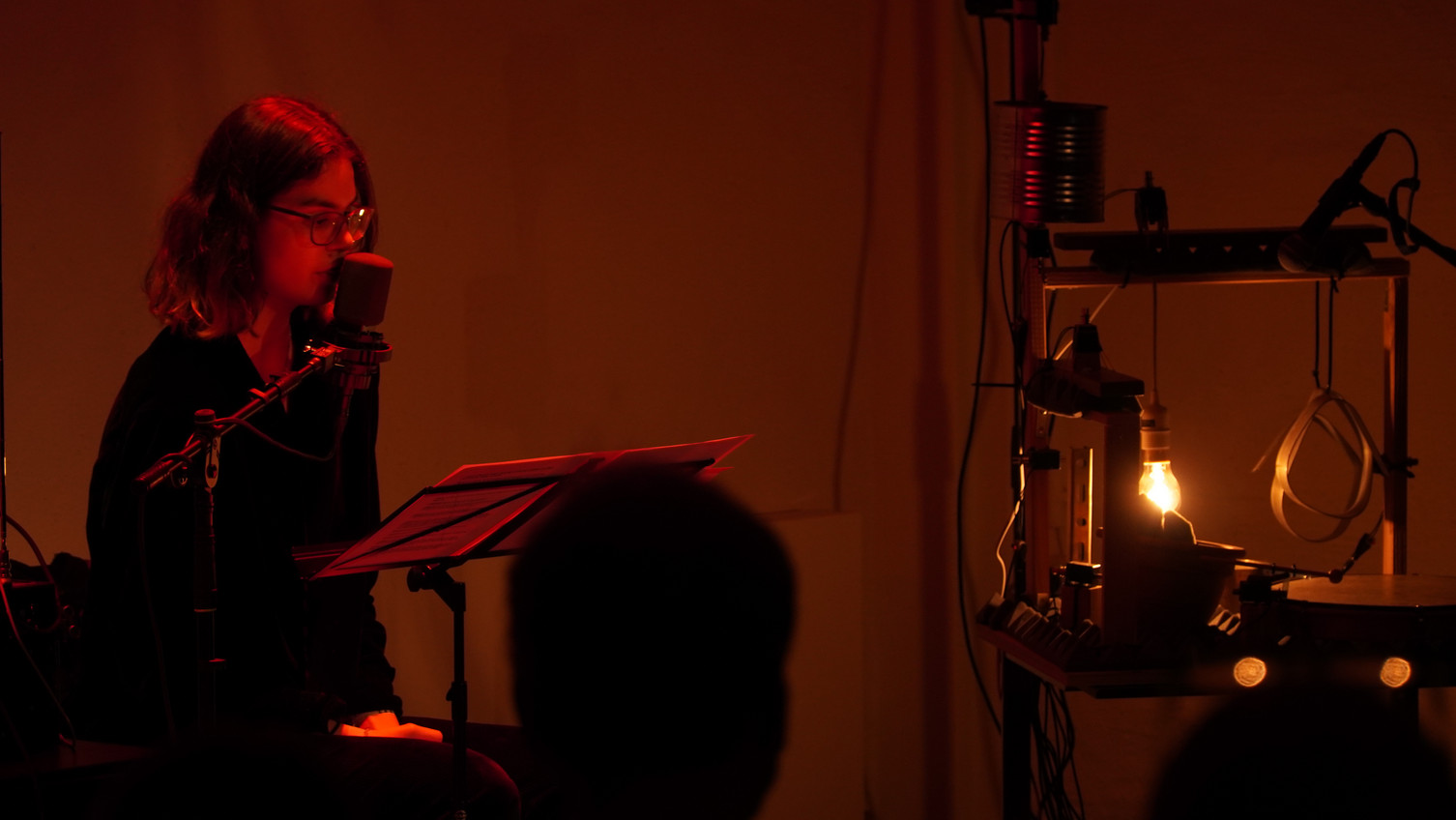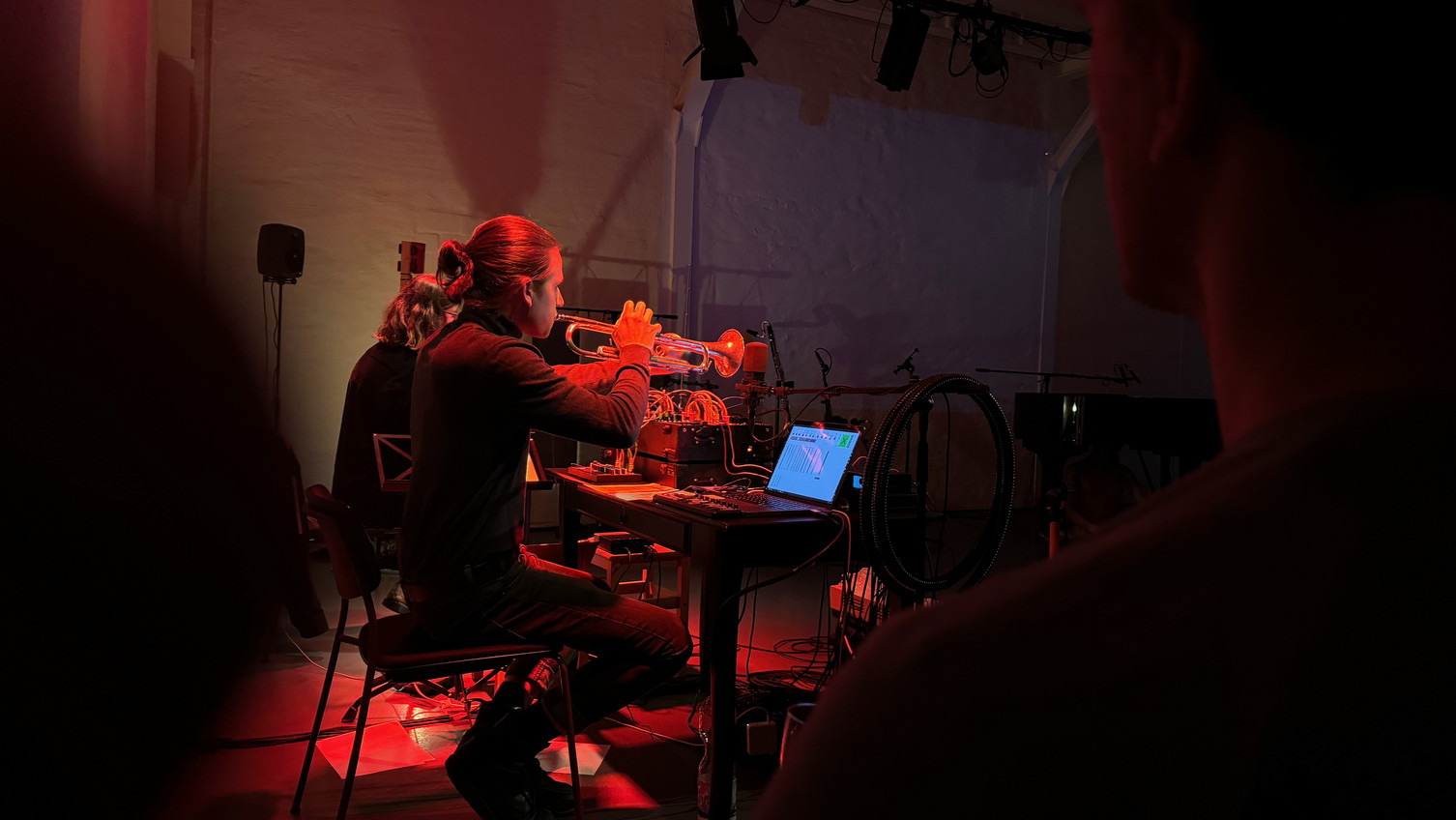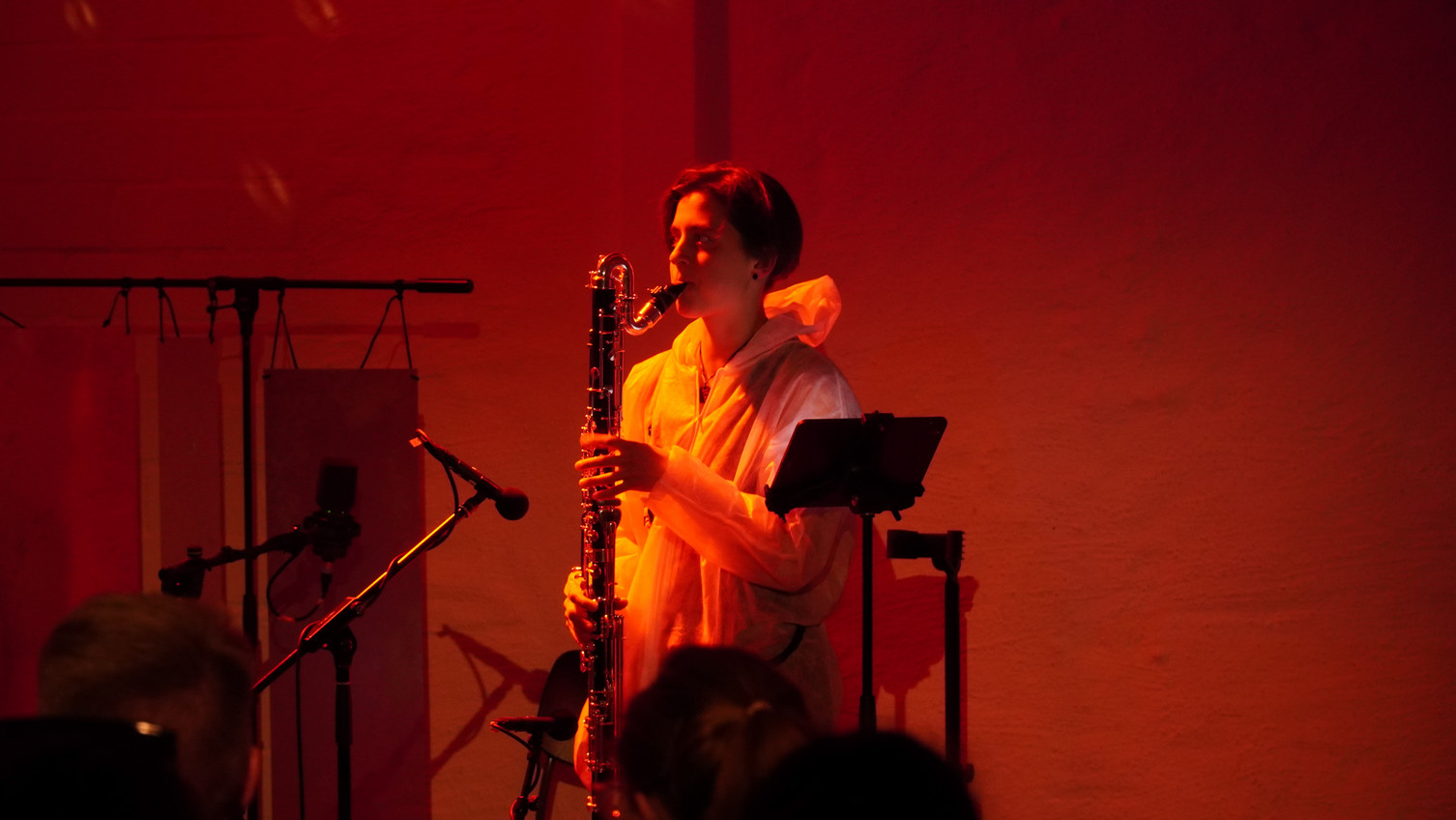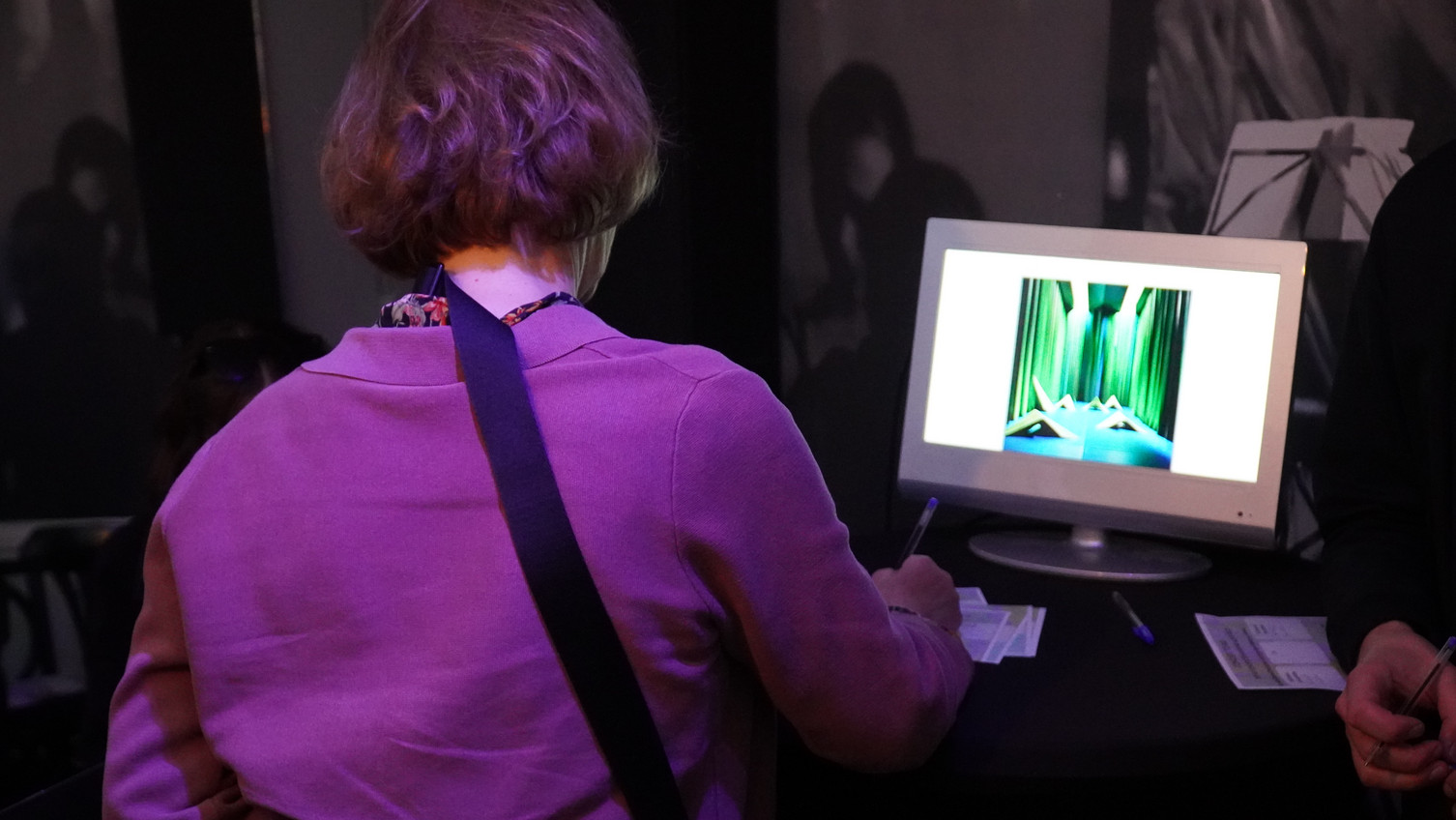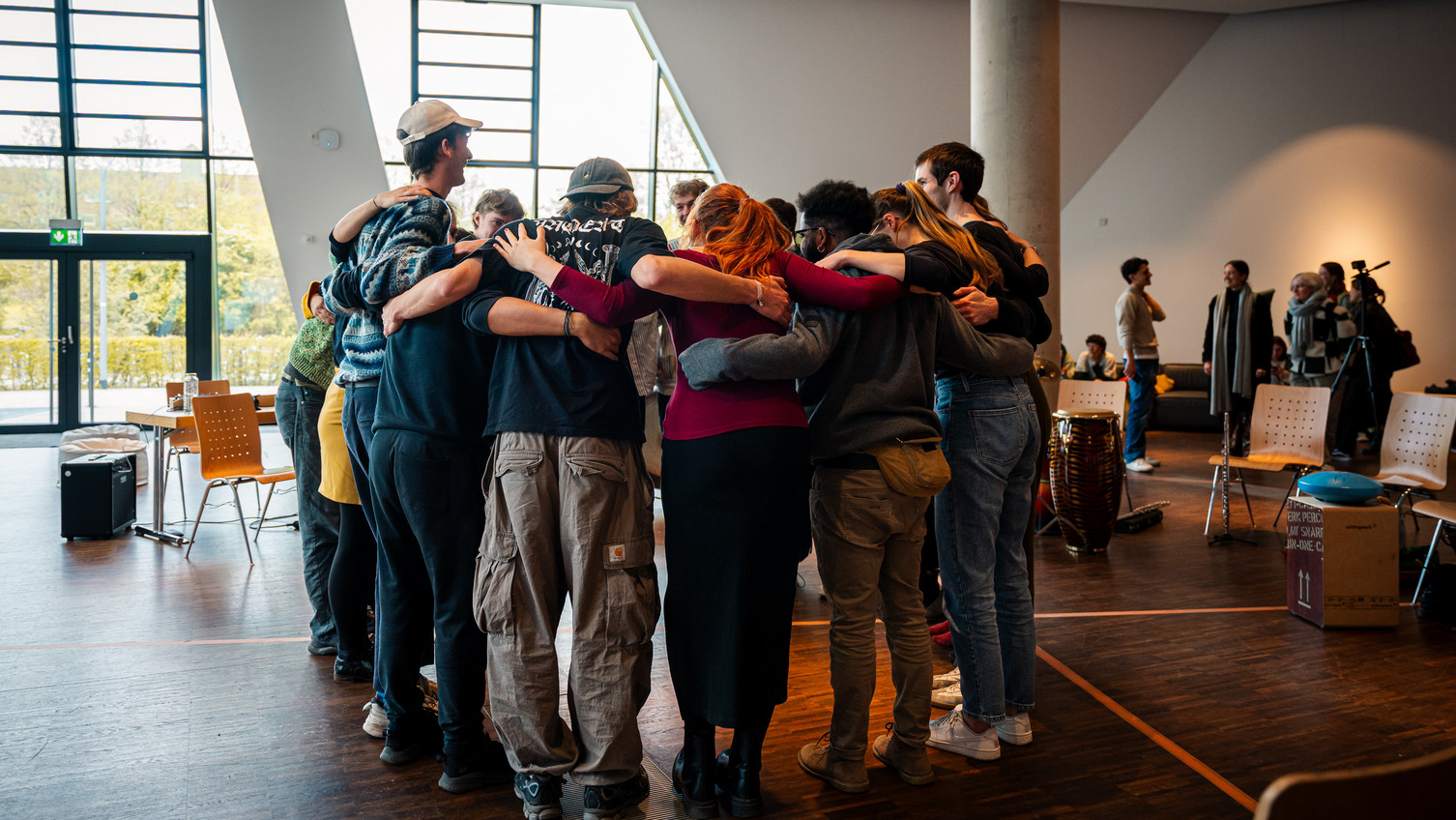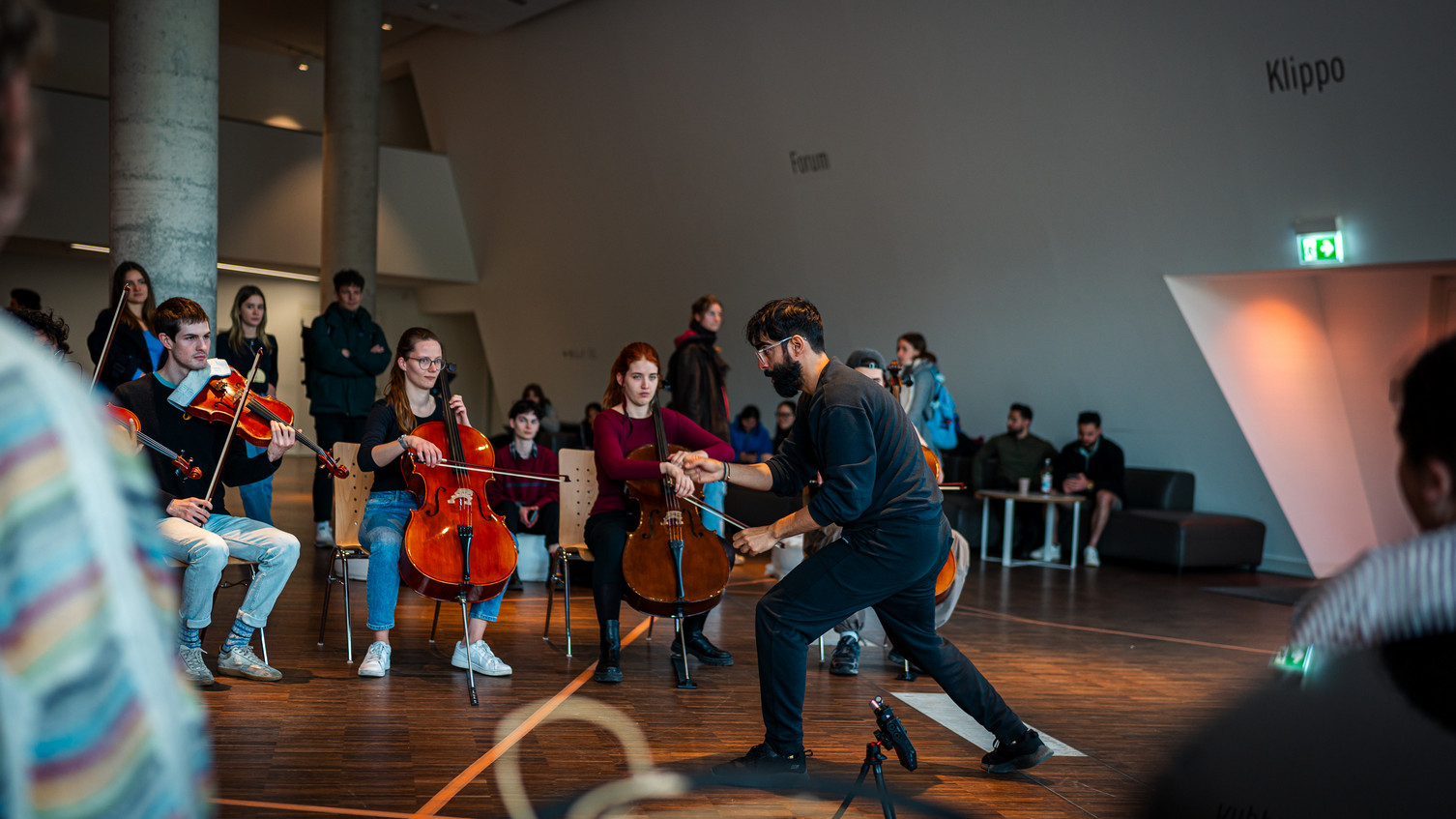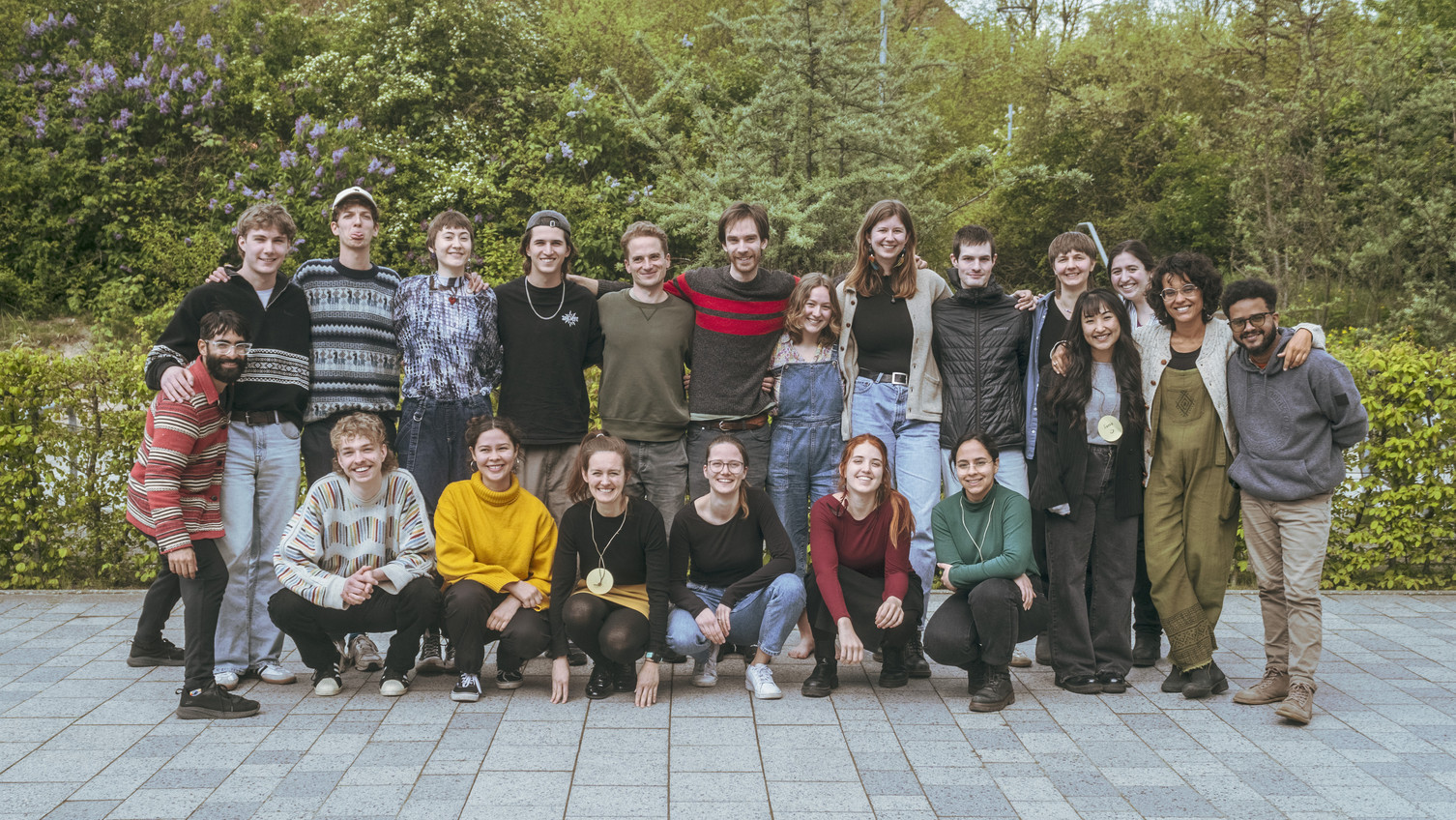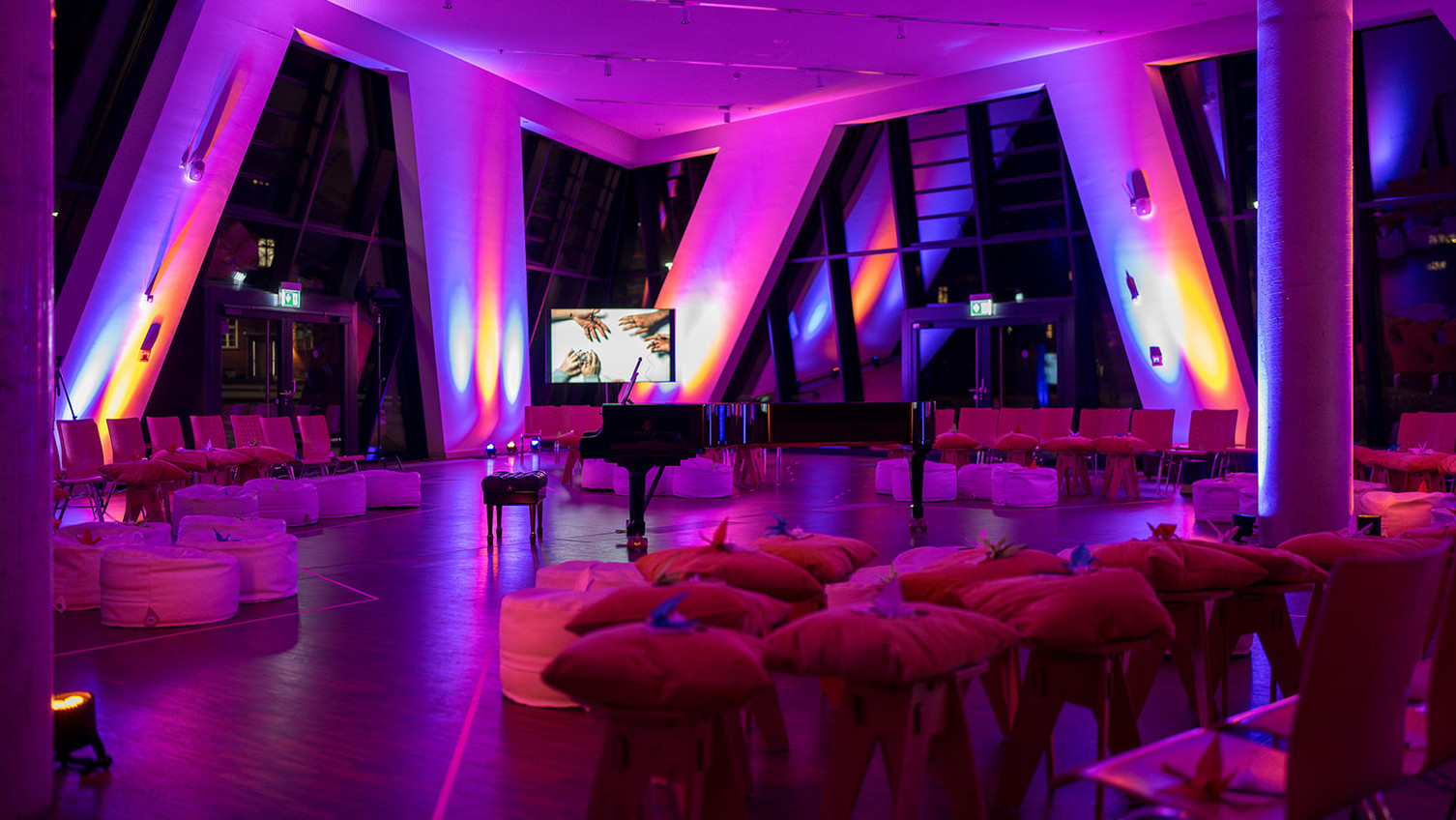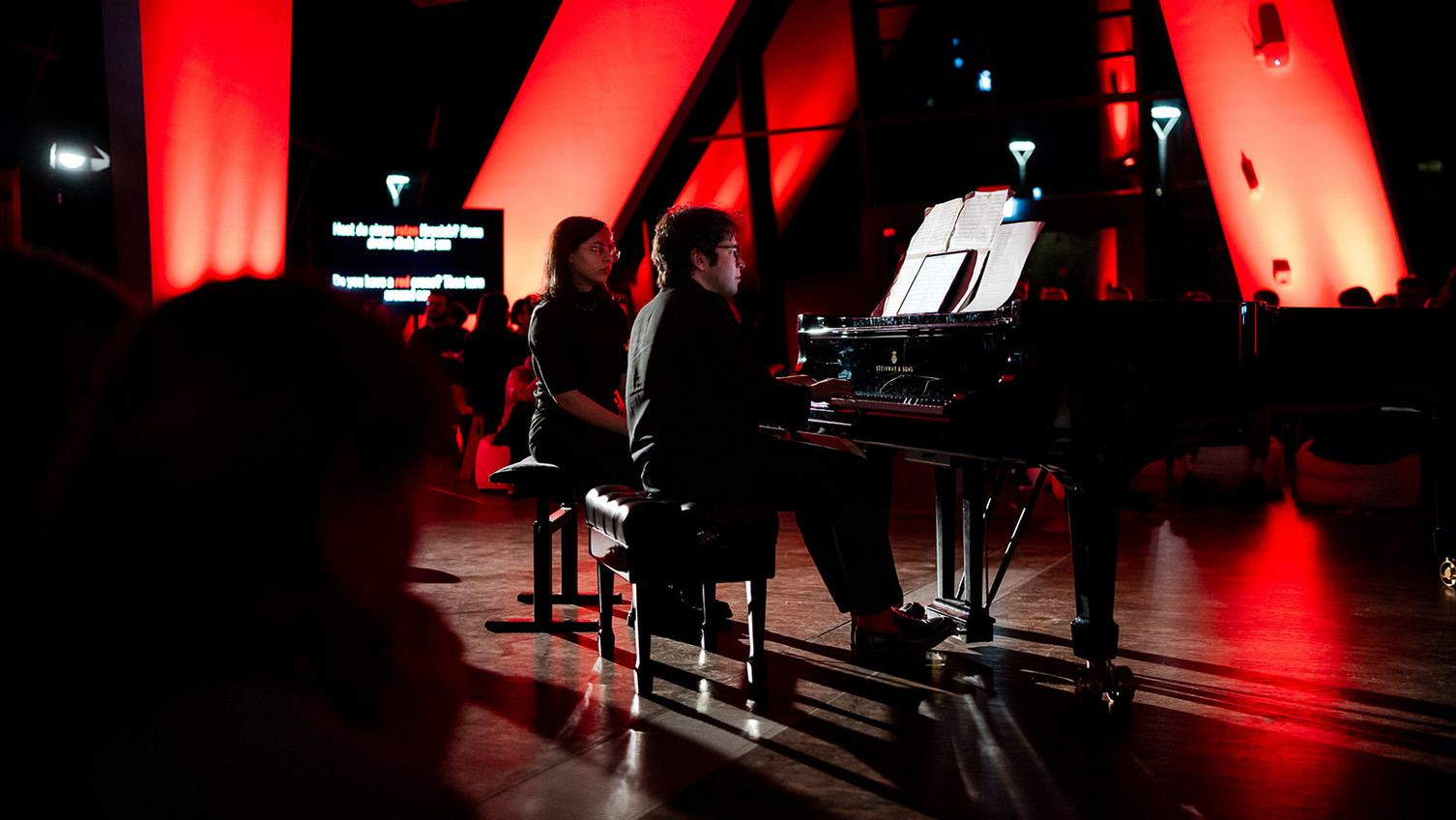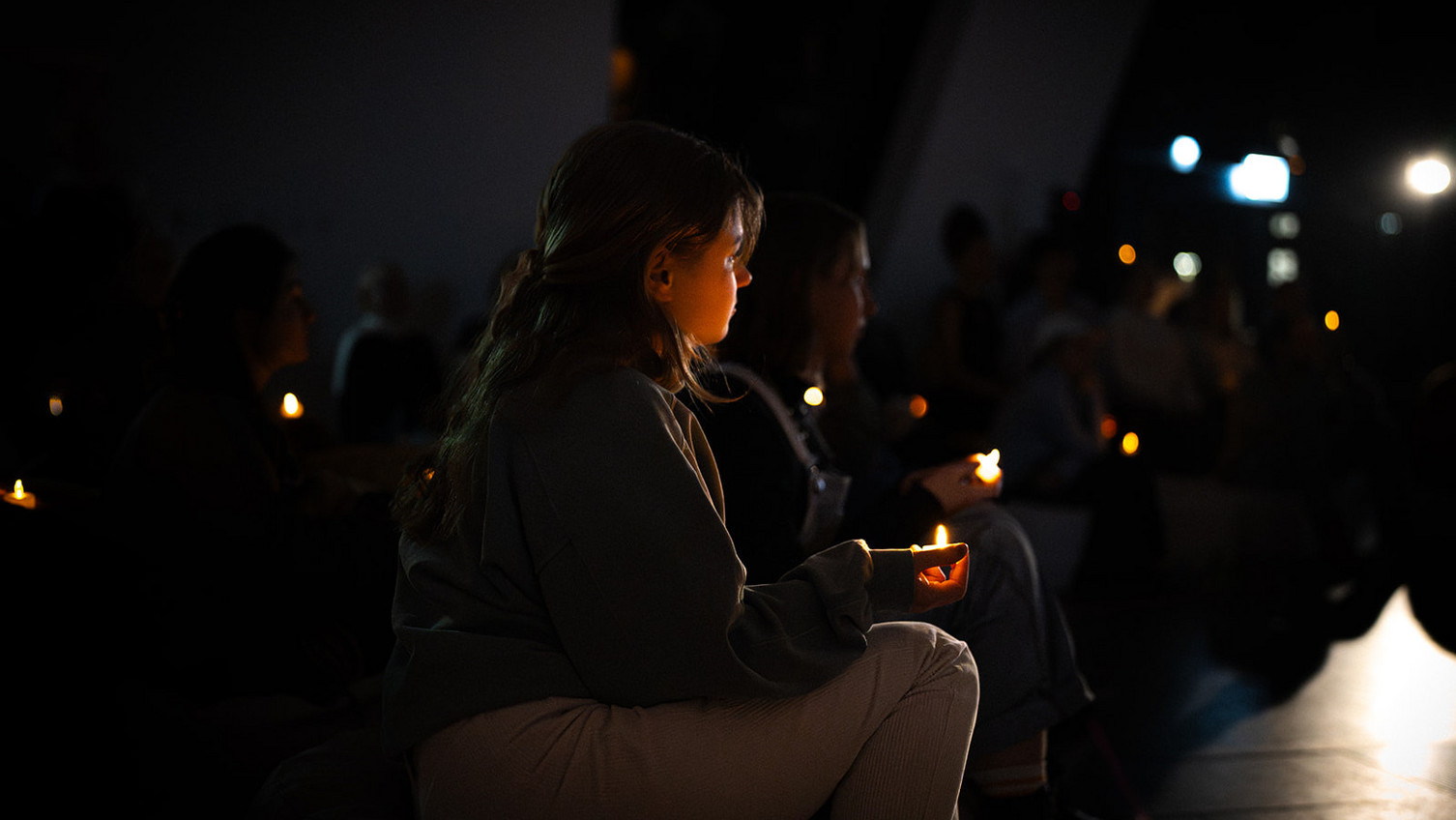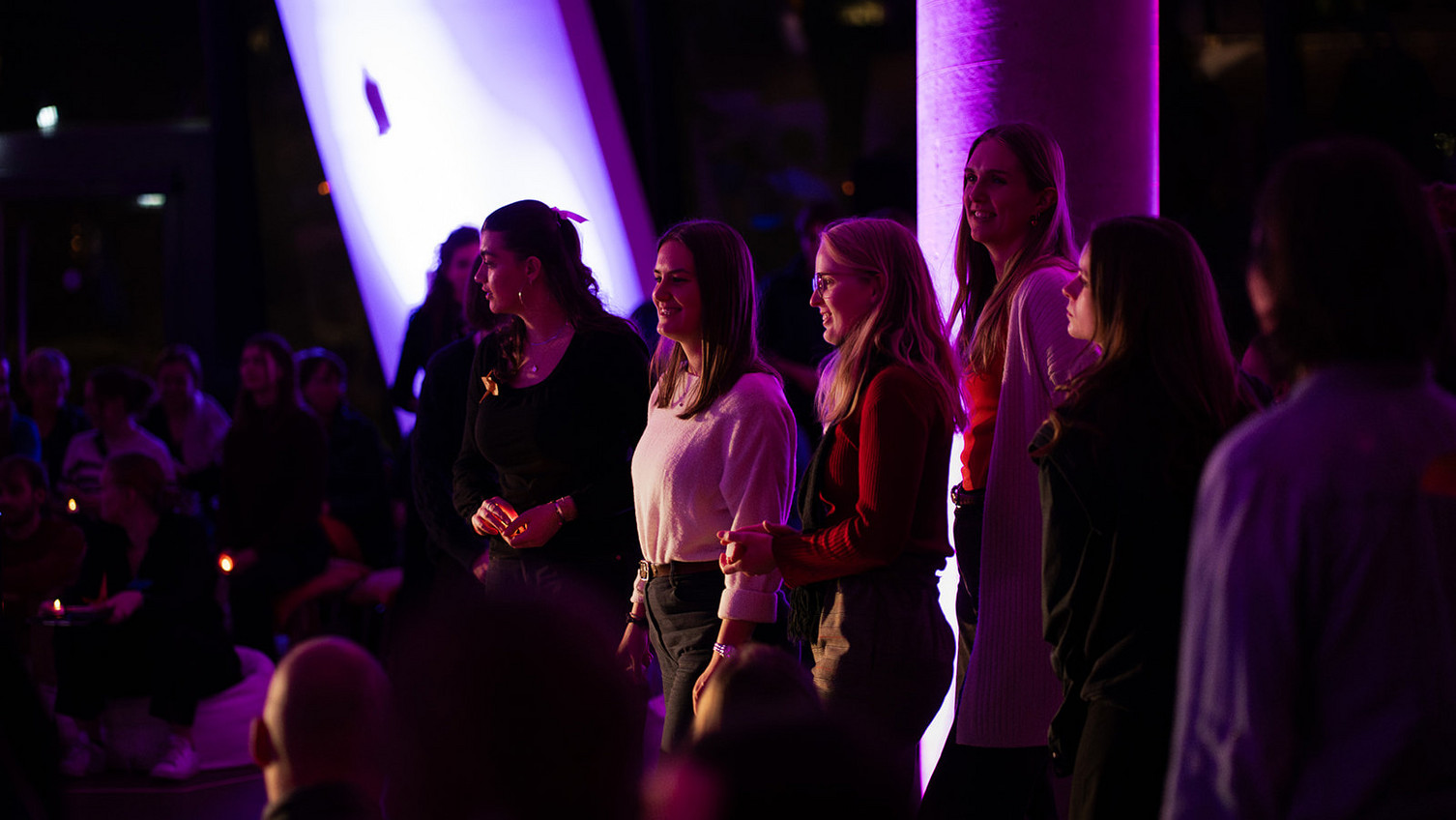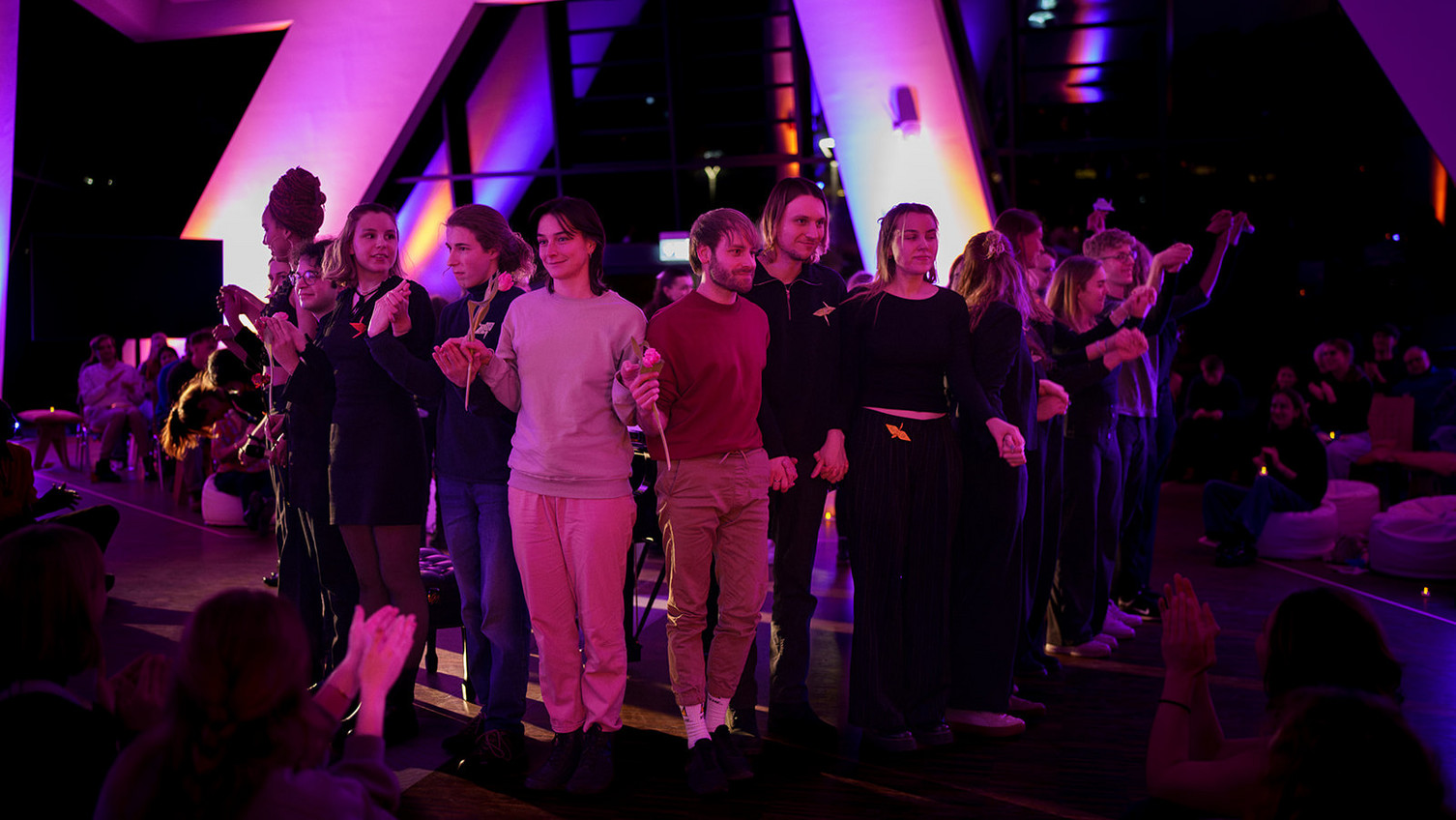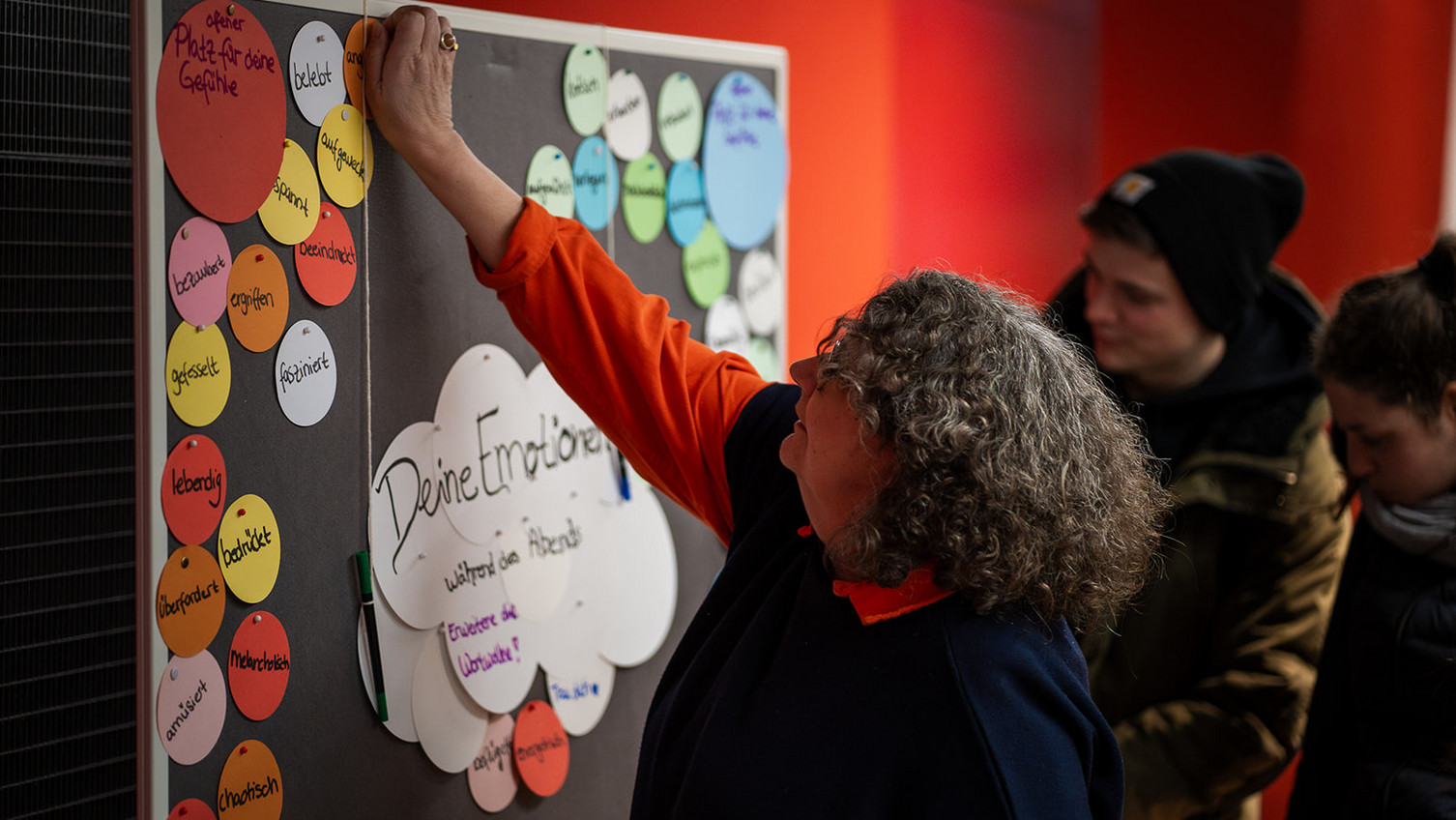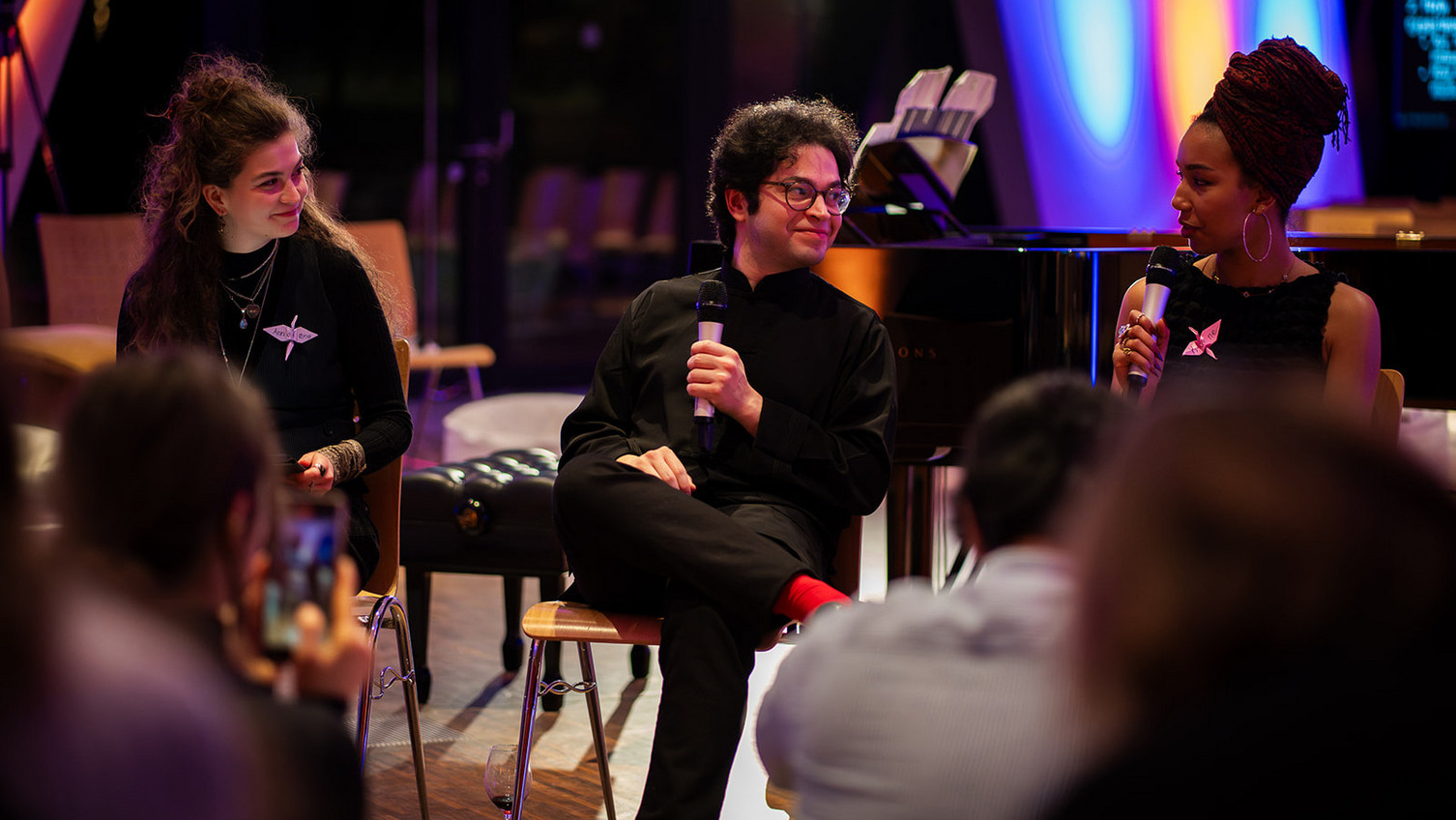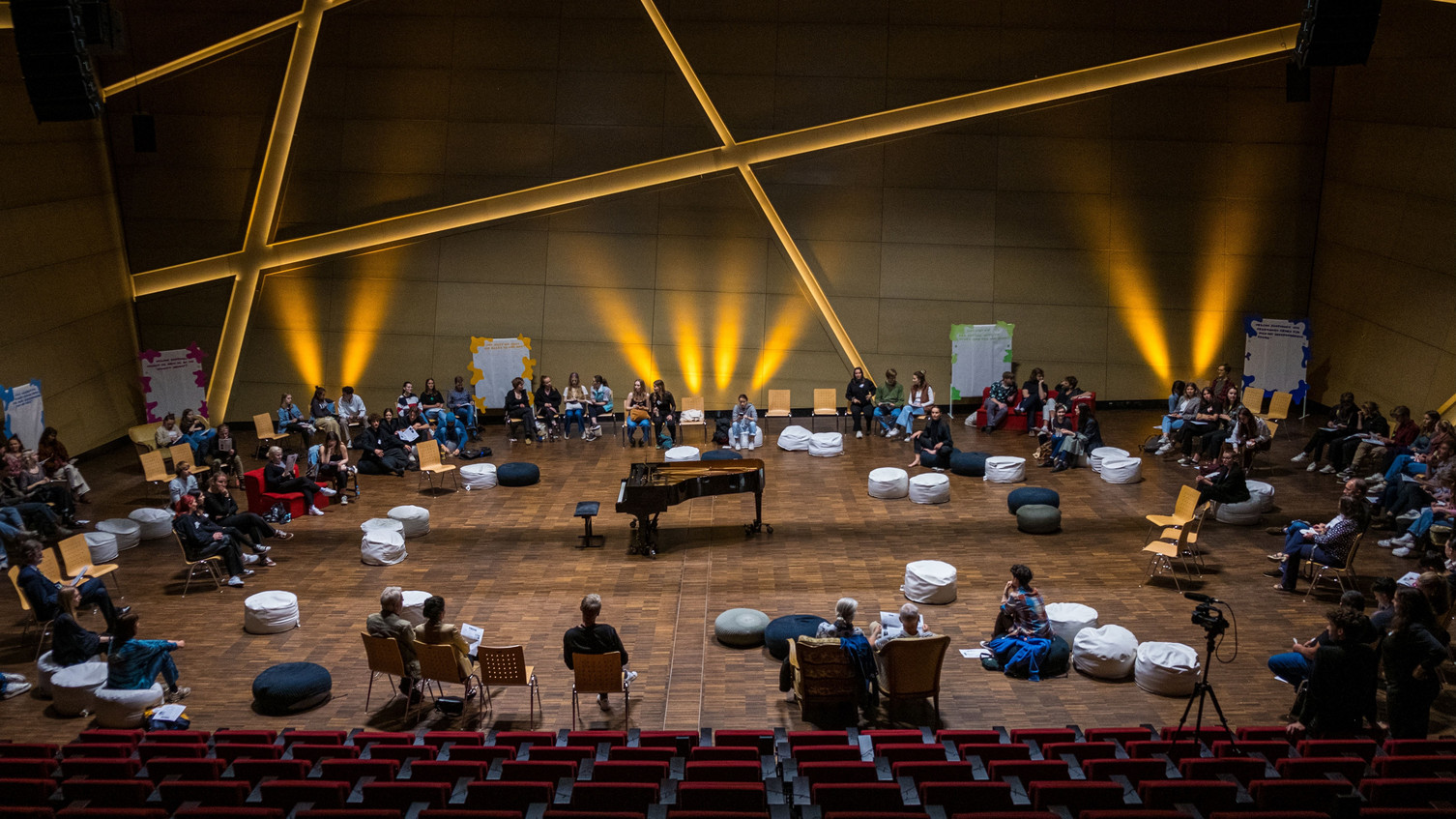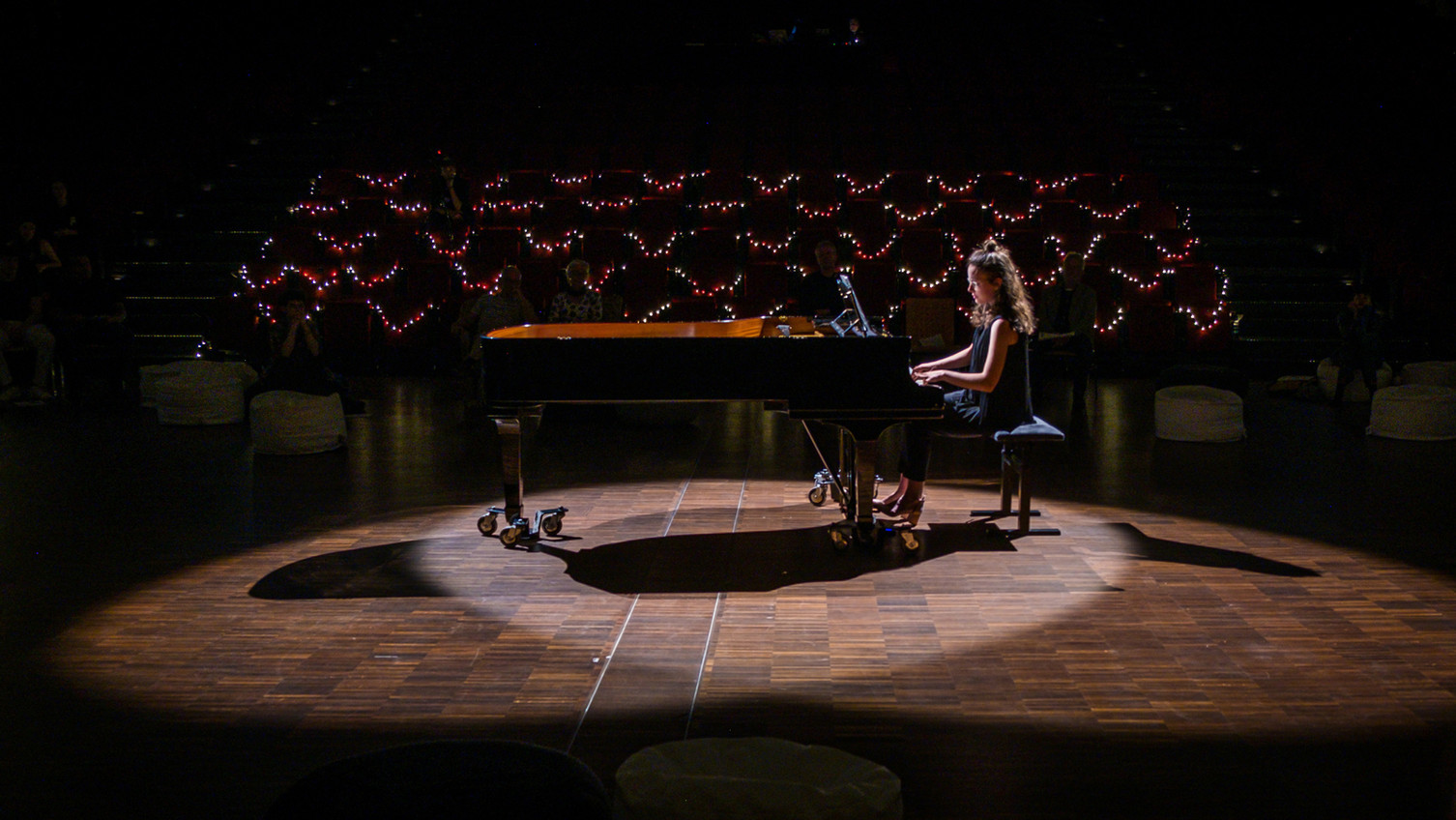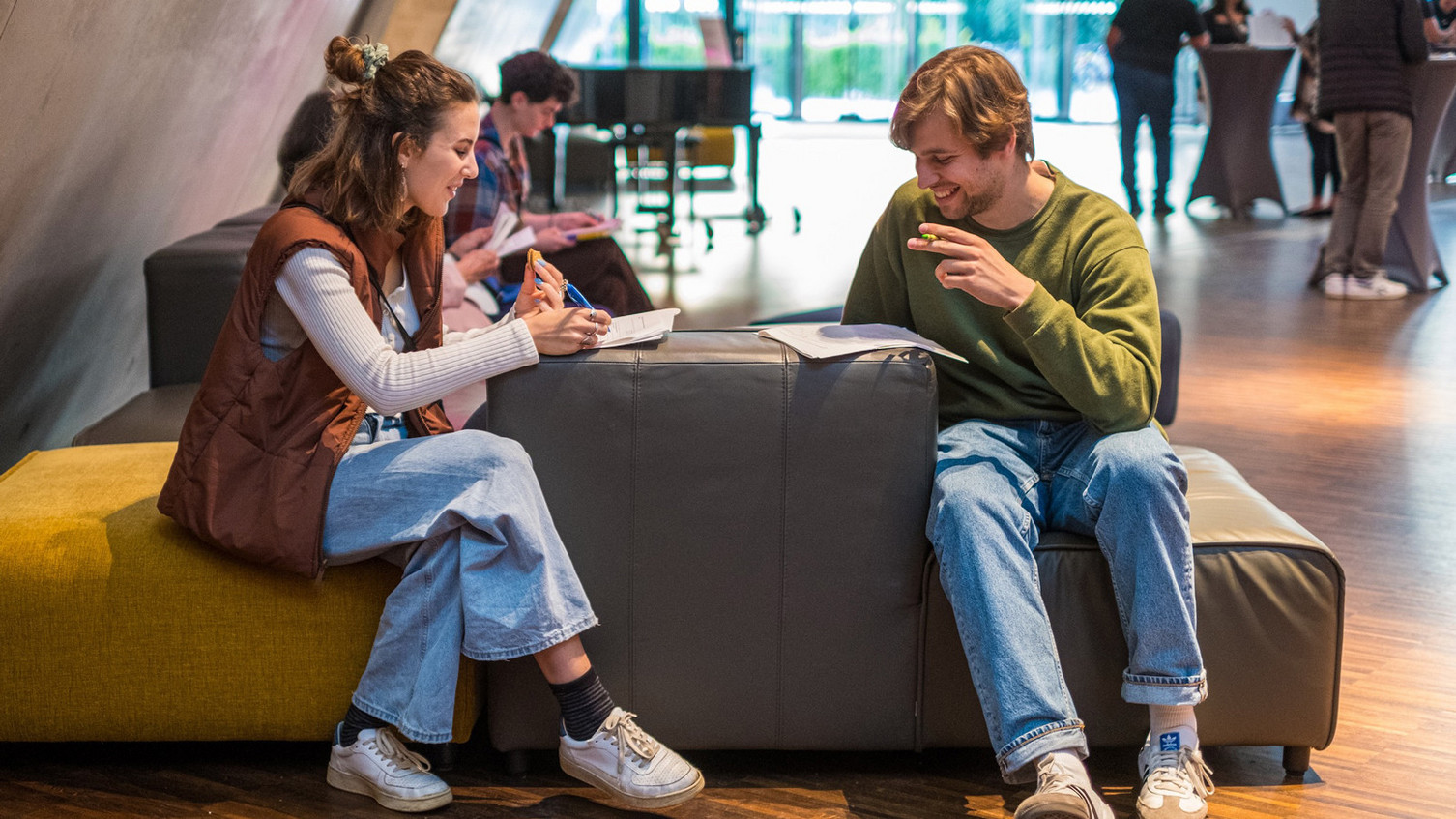"Transforming" - Concert with Viktor Soos
The Leuphana Concert Lab project with Steinway Prize Winner Viktor Soos was dedicated to the topic of transformation and the question of how we look at the concept of transformation from our different personal and professional backgrounds. During the semester, it quickly became clear that there are many perspectives on transformation - social, technological and individual. What are the preconditions for a successful transformation? And what contribution can we as individuals actually make to a social transformation? How can we overcome the fears and challenges associated with change? How can we make change - both individually and socially - perceptible through music?
These questions formed the basis for the project development and the concert evening, which was co-created by around 25 students from all departments and the award-winning pianist Viktor Soos. The participants spent a semester exploring the topic, visiting various concerts as a source of inspiration and working together to develop their own artistic interpretation.
The final concert took place on January 22, 2025 in front of around 200 guests - including Leuphana students, family members and interested Lüneburg residents. The theme of the evening was addressed on various levels - in the room design, the musical selection of works, but also in concrete artifacts. Upon entry, all guests received a macramé butterfly with a request to leave a message for another audience member on it. The way into the auditorium led through a labyrinth-like detour, accompanied by deep synthetic sounds that combined with the large-scale video installation by Vanessa Könemund and Mirella Frenzel created an immersive experience.
First the audience took their seats in the stands and listened to Viktor Soos, who opened the evening with Johann Sebastian Bach's "Aria" from the Goldberg Variations. But the concert did not remain static: guests were invited to move around the stage and experience the music up close to the grand piano. With works by Emilie Mayer, Amy Beach and Alban Berg, the musical tension built up to Arnold Schönberg's “Six little piano pieces op. 19”, before the evening came to a close with Maurice Ravel's “Miroirs M. 43” and Fanny Hensel's “Allegretto” from Melodie op. 4 No. 2. Between the pieces of music, the performance was accompanied by brief spoken interventions by the seminar participants, which deepened the thematic framework of the concert and encouraged reflection. The audience was also actively involved, for example through joined singing.
At the end of the evening, Bach's “Aria” was played again, but much had changed: The grand piano was in a different place, the audience had moved physically and emotionally. In accordance with Viktor Soos' wish to “create an experience in his concerts that leaves the audience with a different feeling than when they came in.”
After the concert, the audience was able to discuss what they had experienced in a moderated discussion with transformation researcher Dr. Theres Konrad and pianist Viktor Soos and delve even deeper into the topic.
The evening was scientifically accompanied by a team led by Prof. Dr. Sigrid Bekmeier-Feuerhahn.
"Artificial Resonance" - TONALiSTEN // chaos|cadence
In the summer semester of 2024, the Leuphana Concert Lab cooperated with two practical partners as part of a complementary seminar: the Hamburg-based organization TONALiSTEN and the interdisciplinary music ensemble chaos|cadence. Building on input from the ensemble and Jonathan Pengl, managing director of TONALiSTEN, the students developed an interactive, multimedia supporting program for chaos|cadence's “Artificial Resonance” concert.
Chaos|cadence is interested in questions that are highly topical in view of the rapid progress in the development of artificial intelligence: How do we perceive artificial intelligence? To what extent is the image of the cyborg culturally shaped? In their concert performance, they show how they can interact with so-called “musical agents” (music generators) in concert, transforming the concert into a space of possibilities. After the concert, the audience was able to explore their own attitudes towards artificial intelligence in music. The students' exhibition invited them to do so, in which, for example, AI was explored with the sense of touch, or AI-supported images were generated to capture the individual concert experience in a personalized way.
The interactive exhibition was presented to the public at Leuphana at the end of the semester and the learning process was reflected on in the form of short videos, which will also serve as a basis for future seminars.
"The Art of Bricolage" - Performance with the EIH
The Cuban-origin Ensemble Interactivo de la Habana (EIH) specializes in improvisation, sound experiments and interdisciplinary art. The ensemble uses classical instruments as well as everyday objects and increasingly electronic aids to create sound art. It has been doing pioneering work in Cuba for almost 10 years and symbolizes the art of “bricolage” (“making do by applying combinations of the resources at hand to new problems and opportunities” (Baker and Nelson, 2005). Its aim is to create moments of creativity and curiosity, to involve the audience, to present what has never been heard before and to stimulate reflection.
As part of the Concert Lab seminar “The Art of Bricolage”, around 20 students were able to co-creatively shape this process and explore their own approaches to dealing with resources (limitations) in a research-based and practical way. The musicians from Cuba were guests at Leuphana for almost a week and organized a workshop lasting several days, which offered an exciting space for creativity and exchange - even without the need for musical knowledge. At the end of the collaboration, two public concerts took place in the Forum: a performance by the EIH based on collective improvisation and a concert improvisation by the entire seminar using the so-called sound painting technique.
"Connecting" - Concert with Arash Rokni
What does social cohesion sound like? How can we bring social dynamics such as conflict, division, group formation and community to life in a concert? These questions were the focus of the first Concert Lab in cooperation with Steinway & Sons.
The young Iranian pianist Arash Rokni was suggested for the collaboration after his success at the Leipzig Bach Competition and agreed to take part. The students from the various departments in the complementary studies program spent a semester discussing the topic, attending various concerts as examples and exchanging ideas with artists in order to put together their own concert evening. At the same time, a cultural studies seminar explored new approaches to audience research and accompanied the concert evening with its own research projects.
The 200 or so guests included many Leuphana students as well as interested Lüneburg residents. The initial results from the audience discussion and the survey show that there was a very wide range of visitors - not only the classic regular audience came to the concert, but also many young people in particular who would otherwise describe themselves as non-attendees.
Arash Rokni explained in conversation that, as an artist, he does not see himself as an objective observer, but as part of society. Together with the students, he therefore selected composers whose creative work had been restricted by social division or who had been excluded from society for various reasons. He sees the role of artists in today's increasingly individualized society as highlighting the interconnectedness and dependence of the individual on their fellow human beings and making a contribution to the awareness of their audience. Two speakers from the seminar complemented the music with stage directions, quotes and poetry. The students also invited two dancers to perform Hindemith's “Suite 1922”, which embodied social dynamics, conflicts, division and the expulsion of individuals from society, so to speak. “The topic of social cohesion is constantly on everyone's lips, but very few people have a clear idea of it,” said one seminar participant, ”although we all want to convey tolerance, everyone is subconsciously in their own bubble and we find it difficult to leave old patterns behind."
Further information can be found in the concert announcement.
"Overload" - Test concert with Josefa Schmidt
“Concerts can mean much more than performance/perfection. They can tell us something, they can make us think and exchange ideas. Thank you!” (Audience feedback)
The first concert of the Leuphana Concert Lab was presented in the summer semester 2023 in the auditorium of the Libeskind building under the title “Overload - (k)ein klassisches Konzert”. Around 20 cultural studies students designed the pilot concert in close collaboration with the young pianist Josefa Schmidt. The aim of the seminar was to link classical music to a relevant topic in order to create new approaches. The students chose the cross-generationally relevant topic of excessive demands and dealt with how this feeling can be experienced and overcome by the audience in the concert. To this end, they worked in groups on one concert parameter each: from the design of the space and the choice of music to extra-musical interventions (including poetry and dance). In addition to invited stakeholders from the region and the university, first-time visitors from the students' circle of acquaintances in particular took part in the free event. After the evening, information about the audience's concert experience was collected using an anonymous evaluation form and each group reviewed their work in the form of a project report.

